

Tech for Good Institute Launches Essay Contest
12:39 pm | 21 September 2022
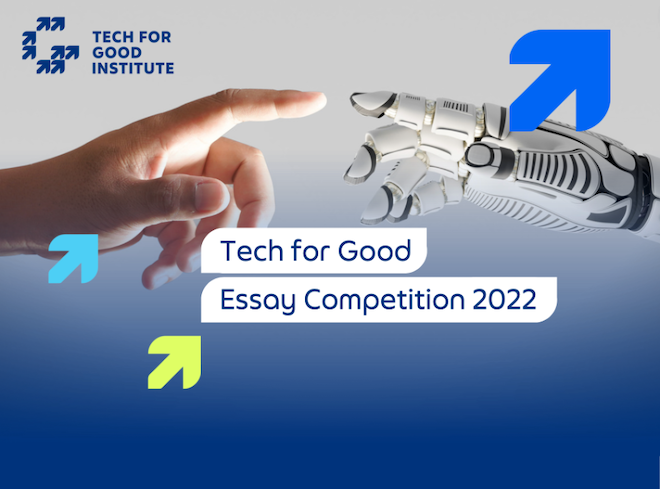
Tech for Good Institute, a think tank set up by superapp Grab, is now accepting applications to an essay-writing contest open to university students aged 18–35 year old across Southeast Asia.
Themed, “Shaping the Future of Southeast Asia’s Digital Economy,” the contest is open for entries until 31 October 2022. The goal of the competition is to encourage future leaders to think critically about the future of the digital landscape, especially as digitalization rapidly reshapes Southeast Asia and cooperation of all stakeholder groups across the region is needed to create an environment that protects public interest, supports innovation, and enables a level playing field for all.
Tech for Good Institute has partnered with six universities in Southeast Asia's biggest markets for the contest. These are: Institut Teknologi Bandung, Universiti Malaya, University of the Philippines, Singapore University of Technology and Design, Chiang Mai University, and Vietnam National University. The Asian Development Bank's Southeast Asia Development Solutions is one of the outreach partners for the essay contest.
Competition details
- The essay competition will be free to enter and open to university-aged students across the region.
- The essay should have no more than 1,500 words and be about the digital economy, its challenges, and how its promise can be maximized for the most good in the applicant's country and/or Southeast Asia as a whole. The theme may be explored through the lens of sustainability, trust, or equity, though this is not a requirement. The essays must be aligned with the competition’s theme; be relevant to entrant’s local context or the Southeast Asian region as a whole; and be evidence-driven.
- Essays will be judged on the level of demonstrated knowledge and understanding of the theme, quality of insight, compelling use of evidence, quality of argumentation, structure, and persuasive force.
- Essay submissions can be in English or the local vernacular (limited to Bahasa Indonesia, Bahaha Melayu, Thai, and Vietnamese).
- Submitted essays in each country will be shortlisted by an academic panel proposed by a partner university in that country, and the partner regional institution. Three winning entries will be selected by a second judging panel comprising a jury co-selected by the Tech For Good Institute and the partner university/regional institution.
- Three winners in each the six countries with a partner university will be selected, with $1,000 for the first prize, $750 for the second prize, and $500 for the third prize. Separately, three winners will be selected from other countries without a partner university.
- The prize ceremony will be conducted online by the Tech For Good Institute, though partner universities may choose to further engage the winners in other ways.
Winning essays will be published by the Tech For Good Institute and shared across the region via digital channels, as well as through a book.
For more information about the competition and to submit entries, visit Tech for Good Institute's website .
ASEAN Taxonomy Defines Sustainable Activities in Transport, Construction Sectors
Asia-pacific trade facilitation report 2024: promoting sustainability and resilience of global value chains, reuse of electric vehicle batteries in asean, asean finance ministers take on pivotal role in climate action, asian economic integration report 2024: decarbonizing global value chains, related articles, how covid-19 is spurring digital transformation, take advantage of opportunities opened by digital acceleration, realizing the potential of over 71 million msmes in southeast asia, a career upended by the digital revolution.

Want to Learn More?
Subscribe to the Newsletter
Email Address Submit

Tech for Good Essay Competition 2022
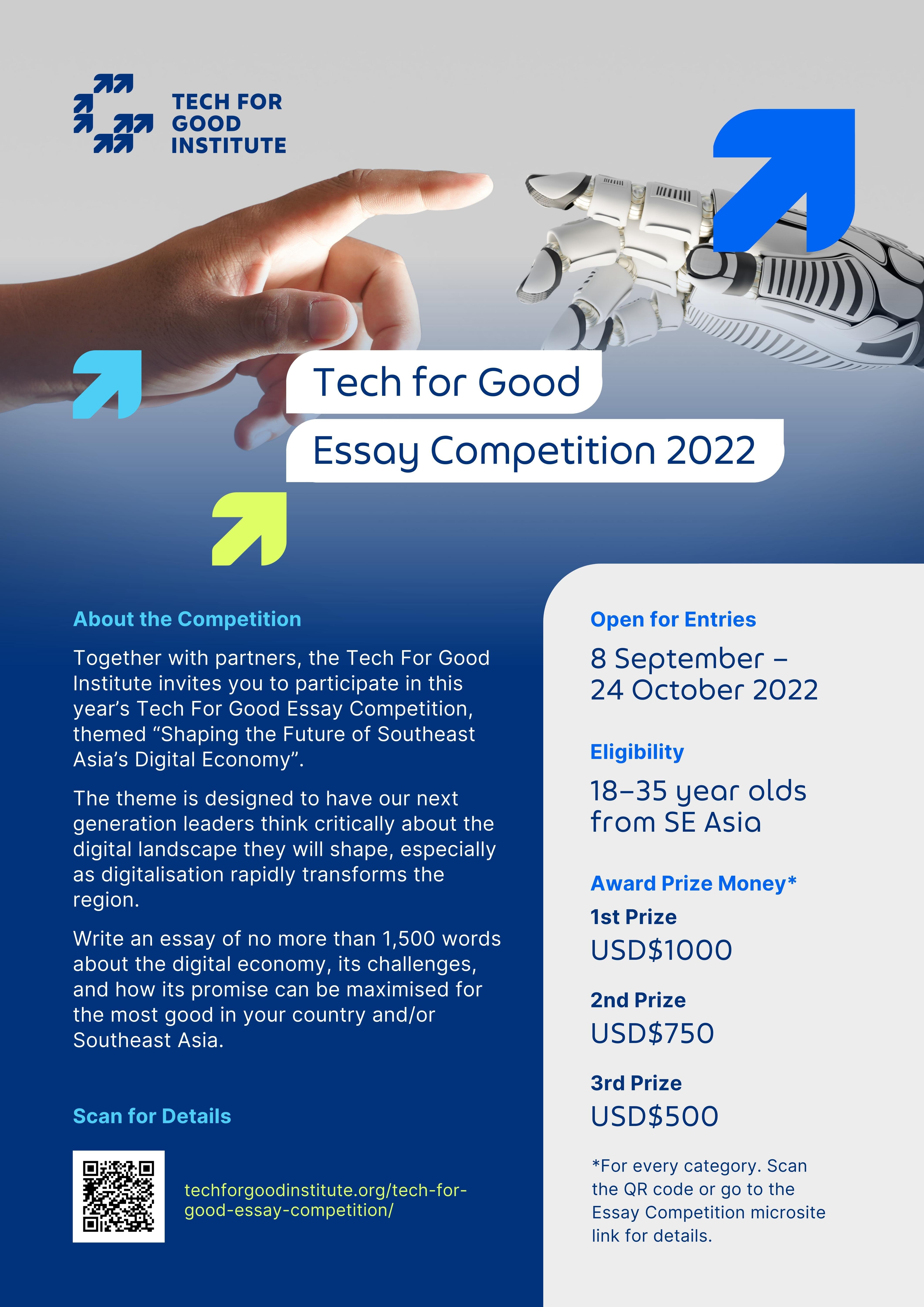
- College Executive Board
- Haraya 2030
- The UP Charter
- Recognized CSSP-Based Student Organizations
- Research and Publications
- Manual of Operations
- The UP Diliman Committee on Anti-Red Tape (CART)
- Citizen's Charter
- First Year Applicants
- Transfer Applicants
- Programs Offered
- Departments
- Institute and Center
- Remote Teaching and Learning
- NEWS & EVENTS
- Follow via Facebook
- Follow via Twitter
- Mae Fah Luang University Act B.E. 2541
- Integrity Pledge in MFU Administration
- University Council
- Executive Staff
- Organisational Structure
- Dormitories
- School of Agro-Industry
- School of Anti-Aging and Regenerative Medicine
- School of Cosmetic Science
- School of Dentistry
- School of Health Science
- School of Information Technology
- School of Integrative Medicine
- School of Law
- School of Liberal Arts
- School of Management
- School of Medicine
- School of Nursing
- School of Science
- School of Sinology
- School of Social Innovation
- Certificate Programme
- Bachelor's Degree
- Master's Degree
- Doctoral Degree
- Online Application
- Scholarships for International Students
- Registration System
- International Student's Guide
- MFU Wish Channel
- Information For New Students
- Visiting Scholars Profile
- Visiting Scholars Application
- MFU Visit Reservation Form
- Collaborations
- Job Opportunity
Call for Entries: Tech for Good Institute Launches Essay Contest
Tech For Good Essay Competition
The Tech For Good Institute invites you to participate in this year’s Tech For Good Essay Competition, themed “Shaping the Future of Southeast Asia’s Digital Economy”.
Tech for Good Institute, a think tank set up by superapp Grab, is now accepting applications to an essay-writing contest open to university students aged 18–35 year old across Southeast Asia . The theme is designed to make leaders of tomorrow think critically about the future of the digital landscape they will shape, especially as digitalisation rapidly transforms Southeast Asia.
- Submissions should be no more than 1,500 words in length, excluding any attached charts, tables, footnotes, references, and appendices.
- Each entrant may only submit a single entry, formatted as a Microsoft Word file titled “COUNTRY_SCHOOLNAME_FULLNAME”. If not currently in school, entrants should title their word file “COUNTRY_FULLNAME”.
- Deadline for submission: 24 October 2022
- The contest offers $1,000 for the first prize, $750 for the second prize, and $500 for the third prize.
For more information about the competition and to submit entries, please visit https://techforgoodinstitute.org/events/current-initiative/tech-for-good-essay-competition/
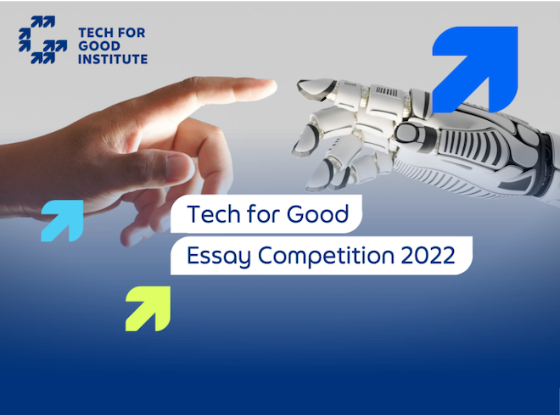
- Created by Piraya Buddhasri
- 250 view (s)
Mario Einaudi Center for International Studies
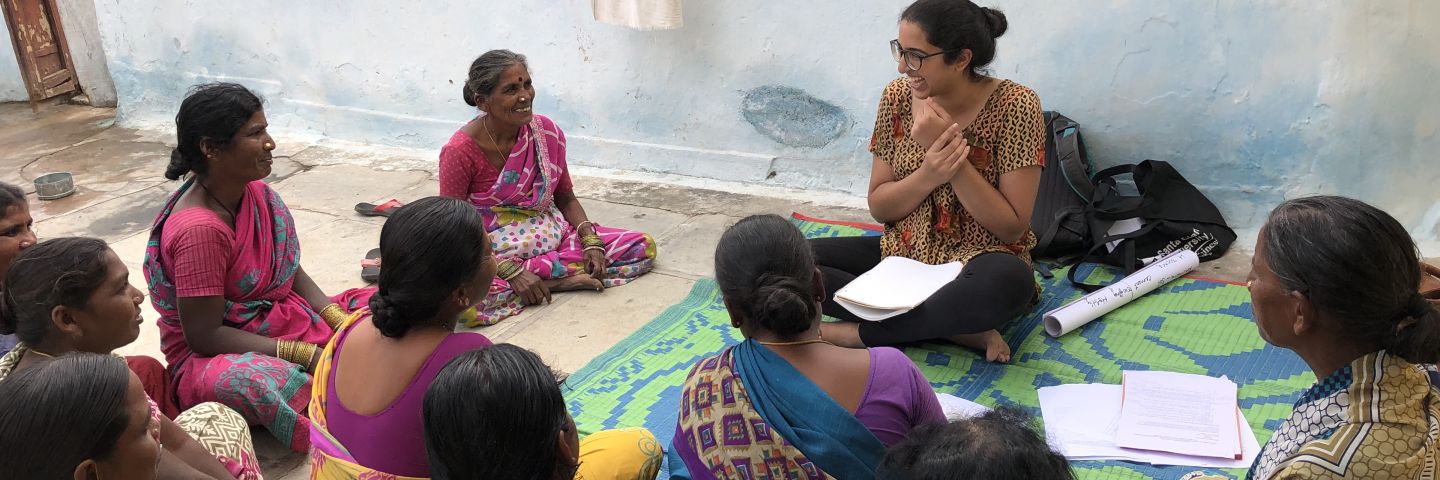
Reppy Institute for Peace and Conflict Studies
Prize for Best Essay in Technology and International Security Policy

The prize for Best Essay in Technology and International Security Policy is a newly established competition starting in AY 2023-2024. The prize is made possible by a generous donor. Awarded up to once annually, this prize offers recognition for the best essay that considers the impact of technology on prospects for peace or war, and/or the ways in which conflict may shape technology.
The essay should be 2500 – 5000 words in length, before references, and may be a term paper or other writing assignment. The deadline for submissions to the 2023-24 competition is May 20, 2024.
Eligibility
All currently enrolled Cornell students—including undergraduate, doctoral, masters, Cornell Tech, law, and medical students—are eligible. However, undergraduate students are particularly encouraged to apply.
How to Apply
- Apply online .
- The essays will be reviewed by a committee of PACS faculty members.
Additional Information
Funding type.
This report is a landscape study providing an overview of the current sandbox initiatives in the SEA-6.

— TFGI Reports

In this article, Jestoni A. Olivo, Policy Research Officer at the Philippine Competition Commission, delves into the progressive development of tech regulation in the Philippines and shares his insights on fostering a responsive regulatory environment in the country. This article builds on the latest research on Tech Regulation by the Tech For Good Institute.
— Expert Opinion

This paper provides an overview of “who” are regulators of Southeast Asia’s digital economy.

In the dynamic realm of digital connectivity, the United States Agency for International Development (USAID) is making significant strides through its Better Access and Connectivity (BEACON) Activity to fuel economic growth in the Philippines. We sat down with Gichelle Cruz, USAID BEACON Gender Equality and Social Inclusion (GESI) Specialist, to delve into the intricacies of their initiatives, the importance of gender-inclusive policies, and the lessons learned along the way.
— Event Highlights

TFGI is on the lookout for visionaries, industry experts, and thought leaders to contribute their perspectives. Whether your passion lies in innovation, sustainable growth, or digital progress, your unique viewpoint on the digital economies of Southeast Asia can spark thought leadership and shape impactful discussions.
— TFGI Insights

In this article, Hilmy Prilliadi, Research Associate at ERIA (Economic Research Institute for ASEAN and East Asia), shares his insights on Indonesia’s tech coordination and regulation, delving into strategies to realise fair digital competition in Indonesia. This article builds on Tech For Good Institute’s (TFGI) latest research on Tech Regulation.

The Institute’s latest report synthesises insights from the 10th ASEAN Economic Dialogue: Unpacking ASEAN’s Digital Economy Framework Agreement.

What should the next phase of Southeast Asia’s growth look like? Launched at Asia Tech x Singapore 2023, this report highlights the challenges and opportunities for collaborative action to drive inclusive, equitable and sustainable growth across the region.

Leveraging the promise of technology to advance inclusive, equitable and sustainable growth
While technology continues to turbocharge Southeast Asia’s growth and development, the reality is that it is also transforming our economies and societies in fundamental and unprecedented ways. We know little yet about how these profound changes may require adaptations in our economic, social, political and economic systems.

- Expert Opinion
Increasing Southeast Asian Representation in AI
As artificial intelligence (AI) continues to make strides, the Tech For Good Institute sat down with Lesllie Teo, Senior Director of AI Products at AI Singapore , to unravel the intricacies of AI development, ethical considerations, and ongoing initiatives.
- Posted April 16, 2024

Achieving Climate-Friendly Low-Carbon Rice through Digital Innovations

Enforcing DEFA Compliance within ASEAN’s Rules-based Framework

Bridging Art, Technology, and Sustainability to Ignite Change

- Event Highlights , Past Events
Charting the Course: Navigating Technology Governance in Southeast Asia
- Posted March 18, 2024

- Event Highlights
Prospects for an ASEAN Digital Community

- Current and Upcoming
Policy Innovation in the Digital Age: Spotlight on Vietnam
- Posted March 6, 2024

- Past Events
20th edition of The Cyber Security Summit
- Posted January 24, 2024
Lorem ipsum dolor sit amet, consectetur adipiscing elit suspendisse suscipit velit ac ligula porta facilisis suscipit sem at metus rhoncus suscipit.

Follow us on Linkedln
Interested in learning more about our work? Get the latest.
All rights reserved. © 2021 Tech For Good Institute
Connect with us, keep pace with the digital pulse of southeast asia.
Never miss an update or event!

Mouna Aouri
Programme Fellow
Mouna Aouri is an Institute Fellow at the Tech For Good Institute. As a social entrepreneur, impact investor, and engineer, her experience spans over two decades in the MENA region, South East Asia, and Japan. She is founder of Woomentum, a Singapore-based platform dedicated to supporting women entrepreneurs in APAC through skill development and access to growth capital through strategic collaborations with corporate entities, investors and government partners.

Essay COMPETITION
2024 global essay prize, registrations are now open all essayists must register here before friday 31 may, 2024.
The John Locke Institute encourages young people to cultivate the characteristics that turn good students into great writers: independent thought, depth of knowledge, clear reasoning, critical analysis and persuasive style. Our Essay Competition invites students to explore a wide range of challenging and interesting questions beyond the confines of the school curriculum.
Entering an essay in our competition can build knowledge, and refine skills of argumentation. It also gives students the chance to have their work assessed by experts. All of our essay prizes are judged by a panel of senior academics drawn from leading universities including Oxford and Princeton, under the leadership of the Chairman of Examiners, former Cambridge philosopher, Dr Jamie Whyte.
The judges will choose their favourite essay from each of seven subject categories - Philosophy, Politics, Economics, History, Psychology, Theology and Law - and then select the winner of the Grand Prize for the best entry in any subject. There is also a separate prize awarded for the best essay in the junior category, for under 15s.
Q1. Do we have any good reasons to trust our moral intuition?
Q2. Do girls have a (moral) right to compete in sporting contests that exclude boys?
Q3. Should I be held responsible for what I believe?

Q1. Is there such a thing as too much democracy?
Q2. Is peace in the West Bank and the Gaza Strip possible?
Q3. When is compliance complicity?
Q1. What is the optimal global population?
Q2. Accurate news reporting is a public good. Does it follow that news agencies should be funded from taxation?
Q3. Do successful business people benefit others when making their money, when spending it, both, or neither?

Q1. Why was sustained economic growth so rare before the later 18th century and why did this change?
Q2. Has music ever significantly changed the course of history?
Q3. Why do civilisations collapse? Is our civilisation in danger?
Q1. When, if ever, should a company be permitted to refuse to do business with a person because of that person’s public statements?
Q2. In the last five years British police have arrested several thousand people for things they posted on social media. Is the UK becoming a police state?
Q3. Your parents say that 11pm is your bedtime. But they don’t punish you if you don’t go to bed by 11pm. Is 11pm really your bedtime?

Q1. According to a study by researchers at four British universities, for each 15-point increase in IQ, the likelihood of getting married increases by around 35% for a man but decreases by around 58% for a woman. Why?
In the original version of this question we misstated a statistic. This was caused by reproducing an error that appeared in several media summaries of the study. We are grateful to one of our contestants, Xinyi Zhang, who helped us to see (with humility and courtesy) why we should take more care to check our sources. We corrected the text on 4 April. Happily, the correction does not in any way alter the thrust of the question.
Q2. There is an unprecedented epidemic of depression and anxiety among young people. Can we fix this? How?
Q3. What is the difference between a psychiatric illness and a character flaw?
Q1. “I am not religious, but I am spiritual.” What could the speaker mean by “spiritual”?
Q2. Is it reasonable to thank God for protection from some natural harm if He is responsible for causing the harm?
Q3. Does God reward those who believe in him? If so, why?

JUNIOR prize
Q1. Does winning a free and fair election automatically confer a mandate for governing?
Q2. Has the anti-racism movement reduced racism?
Q3. Is there life after death?
Q4. How did it happen that governments came to own and run most high schools, while leaving food production to private enterprise?
Q5. When will advancing technology make most of us unemployable? What should we do about this?
Q6. Should we trust fourteen-year-olds to make decisions about their own bodies?
ENTRY REQUIREMENTS & FURTHER DETAILS
Please read the following carefully.
Entry to the John Locke Institute Essay Competition 2024 is open to students from any country.
Registration
Only candidates who registered before the registration deadline of Friday, 31 May 2024 may enter this year's competition. To register, click here .
All entries must be submitted by 11.59 pm BST on the submission deadline: Sunday, 30 June 2024 . Candidates must be eighteen years old, or younger, on that date. (Candidates for the Junior Prize must be fourteen years old, or younger, on that date.)
Entry is free.
Each essay must address only one of the questions in your chosen subject category, and must not exceed 2000 words (not counting diagrams, tables of data, endnotes, bibliography or authorship declaration).
The filename of your pdf must be in this format: FirstName-LastName-Category-QuestionNumber.pdf; so, for instance, Alexander Popham would submit his answer to question 2 in the Psychology category with the following file name:
Alexander-Popham-Psychology-2.pdf
Essays with filenames which are not in this format will be rejected.
The candidate's name should NOT appear within the document itself.
Candidates should NOT add footnotes. They may, however, add endnotes and/or a Bibliography that is clearly titled as such.
Each candidate will be required to provide the email address of an academic referee who is familiar with the candidate's written academic work. This should be a school teacher, if possible, or another responsible adult who is not a relation of the candidate. The John Locke Institute will email referees to verify that the essays submitted are indeed the original work of the candidates.
Submissions may be made as soon as registration opens in April. We recommend that you submit your essay well in advance of th e deadline to avoid any last-minute complications.
Acceptance of your essay depends on your granting us permission to use your data for the purposes of receiving and processing your entry as well as communicating with you about the Awards Ceremony Dinner, the academic conference, and other events and programmes of the John Locke Institute and its associated entities.
Late entries
If for any reason you miss the 30 June deadline you will have an opportunity to make a late entry, under two conditions:
a) A late entry fee of 20.00 USD must be paid by credit card within twenty-four hours of the original deadline; and
b) Your essay must be submitted before 11.59 pm BST on Wednesday, 10 July 2024.
To pay for late entry, a registrant need only log into his or her account, select the relevant option and provide the requested payment information.
Our grading system is proprietary. Essayists may be asked to discuss their entry with a member of the John Locke Institute’s faculty. We use various means to identify plagiarism, contract cheating, the use of AI and other forms of fraud . Our determinations in all such matters are final.
Essays will be judged on knowledge and understanding of the relevant material, the competent use of evidence, quality of argumentation, originality, structure, writing style and persuasive force. The very best essays are likely to be those which would be capable of changing somebody's mind. Essays which ignore or fail to address the strongest objections and counter-arguments are unlikely to be successful .
Candidates are advised to answer the question as precisely and directly as possible.
The writers of the best essays will receive a commendation and be shortlisted for a prize. Writers of shortlisted essays will be notified by 11.59 pm BST on Wednesday, 31 July. They will also be invited to London for an invitation-only academic conference and awards dinner in September, where the prize-winners will be announced. Unlike the competition itself, the academic conference and awards dinner are not free. Please be aware that n obody is required to attend either the academic conference or the prize ceremony. You can win a prize without travelling to London.
All short-listed candidates, including prize-winners, will be able to download eCertificates that acknowledge their achievement. If you win First, Second or Third Prize, and you travel to London for the ceremony, you will receive a signed certificate.
There is a prize for the best essay in each category. The prize for each winner of a subject category, and the winner of the Junior category, is a scholarship worth US$2000 towards the cost of attending any John Locke Institute programme, and the essays will be published on the Institute's website. Prize-giving ceremonies will take place in London, at which winners and runners-up will be able to meet some of the judges and other faculty members of the John Locke Institute. Family, friends, and teachers are also welcome.
The candidate who submits the best essay overall will be awarded an honorary John Locke Institute Junior Fellowship, which comes with a US$10,000 scholarship to attend one or more of our summer schools and/or visiting scholars programmes.
The judges' decisions are final, and no correspondence will be entered into.
R egistration opens: 1 April, 2024.
Registration deadline: 31 May, 2024. (Registration is required by this date for subsequent submission.)
Submission deadline: 30 June, 2024.
Late entry deadline: 10 July, 2024. (Late entries are subject to a 20.00 USD charge, payable by 1 July.)
Notification of short-listed essayists: 31 July, 2024.
Academic conference: 20 - 22 September, 2024.
Awards dinner: 21 September, 2024.
Any queries regarding the essay competition should be sent to [email protected] . Please be aware that, due to the large volume of correspondence we receive, we cannot guarantee to answer every query. In particular, regrettably, we are unable to respond to questions whose answers can be found on our website.
If you would like to receive helpful tips from our examiners about what makes for a winning essay or reminders of upcoming key dates for the 2024 essay competition, please provide your email here to be added to our contact list. .
Thanks for subscribing!

The John Locke Institute's Global Essay Prize is acknowledged as the world's most prestigious essay competition.
We welcome tens of thousands of submissions from ambitious students in more than 150 countries, and our examiners - including distinguished philosophers, political scientists, economists, historians, psychologists, theologians, and legal scholars - read and carefully assess every entry.
I encourage you to register for this competition, not only for the hope of winning a prize or commendation, and not only for the chance to join the very best contestants at our academic conference and gala ceremony in London, but equally for the opportunity to engage in the serious scholarly enterprise of researching, reflecting on, writing about, and editing an answer to one of the important and provocative questions in this year's Global Essay Prize.
We believe that the skills you will acquire in the process will make you a better thinker and a more effective advocate for the ideas that matter most to you.
I hope to see you in September!
Best wishes,
Jamie Whyte, Ph.D. (C ANTAB )
Chairman of Examiners
Q. I missed the registration deadline. May I still register or submit an essay?
A. No. Only candidates who registered before 31 May will be able to submit an essay.
Q. Are footnote s, endnotes, a bibliography or references counted towards the word limit?
A. No. Only the body of the essay is counted.
Q. Are in-text citations counted towards the word limit?
A. If you are using an in-text based referencing format, such as APA, your in-text citations are included in the word limit.
Q. Is it necessary to include foo tnotes or endnotes in an essay?
A. You may not include footnotes, but you may include in-text citations or endnotes. You should give your sources of any factual claims you make, and you should ackn owledge any other authors on whom you rely.
Q. I am interested in a question that seems ambiguous. How should I interpret it?
A. You may interpret a question as you deem appropriate, clarifying your interpretation if necessary. Having done so, you must answer the question as directly as possible.
Q. How strict are the age eligibility criteria?
A. Only students whose nineteenth birthday falls after 30 June 2024 will be eligible for a prize or a commendation. In the case of the Junior category, only students whose fifteenth birthday falls after 30 June 2024 will be eligible for a prize or a commendation.
Q. May I submit more than one essay?
A. Yes, you may submit as many essays as you please in any or all categories.
Q. If I am eligible to compete in the Junior category, may I also (or instead) compete in another category?
A. Yes, you may.
Q. May I team up with someone else to write an essay?
A. No. Each submitted essay must be entirely the work of a single individual.
Q. May I use AI, such as ChatGPT or the like, in writing my essay?
A. All essays will be checked for the use of AI. If we find that any content is generated by AI, your essay will be disqualified. We will also ask you, upon submission of your essay, whether you used AI for any purpose related to the writing of your essay, and if so, you will be required to provide details. In that case, if, in our judgement, you have not provided full and accurate details of your use of AI, your essay will be disqualified.
Since any use of AI (that does not result in disqualification) can only negatively affect our assessment of your work relative to that of work that is done without using AI, your safest course of action is simply not to use it at all. If, however, you choose to use it for any purpose, we reserve the right to make relevant judgements on a case-by-case basis and we will not enter into any correspondence.
Q. May I have someone else edit, or otherwise help me with, my essay?
A. You may of course discuss your essay with others, and it is perfectly acceptable for them to offer general advice and point out errors or weaknesses in your writing or content, leaving you to address them.
However, no part of your essay may be written by anyone else. This means that you must edit your own work and that while a proofreader may point out errors, you as the essayist must be the one to correct them.
Q. Do I have to attend the awards ceremony to win a prize?
A. Nobody is required to attend the prize ceremony. You can win a prize without travelling to London. But if we invite you to London it is because your essay was good enough - in the opinion of the First Round judges - to be at least a contender for First, Second or Third Prize. Normally the Second Round judges will agree that the short-listed essays are worth at least a commendation.
Q. Is there an entry fee?
A. No. There is no charge to enter our global essay competition unless you submit your essay after the normal deadline, in which case there is a fee of 20.00 USD .
Q. Can I receive a certificate for my participation in your essay competition if I wasn't shortlisted?
A. No. Certificates are awarded only for shortlisted essays. Short-listed contestants who attend the award ceremony in London will receive a paper certificate. If you cannot travel to London, you will be able to download your eCertificate.
Q. Can I receive feedba ck on my essay?
A. We would love to be able to give individual feedback on essays but, unfortunately, we receive too many entries to be able to comment on particular essays.
Q. The deadline for publishing the names of short-listed essayists has passed but I did not receive an email to tell me whether I was short-listed.
A. Log into your account and check "Shortlist Status" for (each of) your essay(s).
Q. Why isn't the awards ceremony in Oxford this year?
A. Last year, many shortlisted finalists who applied to join our invitation-only academic conference missed the opportunity because of capacity constraints at Oxford's largest venues. This year, the conference will be held in central London and the gala awards dinner will take place in an iconic London ballroom.
TECHNICAL FAQ s
Q. The system will not accept my essay. I have checked the filename and it has the correct format. What should I do?
A. You have almost certainly added a space before or after one of your names in your profile. Edit it accordingly and try to submit again.
Q. The profile page shows my birth date to be wrong by a day, even after I edit it. What should I do?
A. Ignore it. The date that you typed has been correctly input to our database.
Q. How can I be sure that my registration for the essay competition was successful? Will I receive a confirmation email?
A. You will not receive a confirmation email. Rather, you can at any time log in to the account that you created and see that your registration details are present and correct.
TROUBLESHOOTING YOUR SUBMISSION
If you are unable to submit your essay to the John Locke Institute’s global essay competition, your problem is almost certainly one of the following.
If so, please proceed as indicated.
1) PROBLEM: I receive the ‘registrations are now closed’ message when I enter my email and verification code. SOLUTION. You did not register for the essay competition and create your account. If you think you did, you probably only provided us with your email to receive updates from us about the competition or otherwise. You may not enter the competition this year.
2) PROBLEM I do not receive a login code after I enter my email to enter my account. SOLUTION. Enter your email address again, checking that you do so correctly. If this fails, restart your browser using an incognito window; clear your cache, and try again. Wait for a few minutes for the code. If this still fails, restart your machine and try one more time. If this still fails, send an email to [email protected] with “No verification code – [your name]” in the subject line.
SUBMITTING AN ESSAY
3) PROBLEM: The filename of my essay is in the correct format but it is rejected. SOLUTION: Use “Edit Profile” to check that you did not add a space before or after either of your names. If you did, delete it. Whether you did or did not, try again to submit your essay. If submission fails again, email [email protected] with “Filename format – [your name]” in the subject line.
4) PROBLEM: When trying to view my submitted essay, a .txt file is downloaded – not the .pdf file that I submitted. SOLUTION: Delete the essay. Logout of your account; log back in, and resubmit. If resubmission fails, email [email protected] with “File extension problem – [your name]” in the subject line.
5) PROBLEM: When I try to submit, the submission form just reloads without giving me an error message. SOLUTION. Log out of your account. Open a new browser; clear the cache; log back in, and resubmit. If resubmission fails, email [email protected] with “Submission form problem – [your name]” in the subject line.
6) PROBLEM: I receive an “Unexpected Error” when trying to submit. SOLUTION. Logout of your account; log back in, and resubmit. If this resubmission fails, email [email protected] with “Unexpected error – [your name]” in thesubject line. Your email must tell us e xactly where in the submission process you received this error.
7) PROBLEM: I have a problem with submitting and it is not addressed above on this list. SOLUTION: Restart your machine. Clear your browser’s cache. Try to submit again. If this fails, email [email protected] with “Unlisted problem – [your name]” in the subject line. Your email must tell us exactly the nature of your problem with relevant screen caps.
READ THIS BEFORE YOU EMAIL US.
Do not email us before you have tried the specified solutions to your problem.
Do not email us more than once about a single problem. We will respond to your email within 72 hours. Only if you have not heard from us in that time may you contact us again to ask for an update.
If you email us regarding a problem, you must include relevant screen-shots and information on both your operating system and your browser. You must also declare that you have tried the solutions presented above and had a good connection to the internet when you did so.
If you have tried the relevant solution to your problem outlined above, have emailed us, and are still unable to submit before the 30 June deadline on account of any fault of the John Locke Institute or our systems, please do not worry: we will have a way to accept your essay in that case. However, if there is no fault on our side, we will not accept your essay if it is not submitted on time – whatever your reason: we will not make exceptions for IT issues for which we are not responsible.
We reserve the right to disqualify the entries of essayists who do not follow all provided instructions, including those concerning technical matters.
- THE JOURNEY
- ONLINE PROGRAM

What is Tech4Good

Apply for the Tech4Good Global Competition Today!
Who Can Apply
Seeds For The Future 2022 participants who have continued working and made significant progress on their Tech4Good projects
Tech4Good Competition and Awards Ceremony Timeline

Tech4Good Global Competition Applications Open
Eligible applicants to fill out the online application form: • Submit a 2-minute pitch video • Provide additional materials requested
Tech4Good Global Global Competition Applications Closed and Screening Process Begins
Panel of judges to evaluate all applications and shortlist top applicants to be a part of the Tech4Good Global Competition Applications past the deadline will not be accepted
Tech4Good Global Competition Finalists Announced
Top finalists will be announced to be a part of the Tech4Good Global Competition
Tech4Good Global Competition Online Coaching Sessions
10 one-hour online coaching sessions covering 5 topics will be offered to the Top finalists to prepare them for the Global Competition Pitch Day
Tech4Good Global Competition Online Coaching Session – Customer Discovery & User Testing Workshop
• Top finalists to take part in online coaching and mentoring sessions with PIM to prepare for the Tech4Good Global Competition. Teams will be introduced how to find potential customers and uncovering insights from customer interviews and user testing
Tech4Good Global Competition Online Coaching Session – Technology Review Workshop
• Top finalists to take part in tech review workshops with Huawei to prepare for the Tech4Good Global Competition. During this session, teams will have a feedback session related to technology and review the soundness of their pitch
Tech4Good Global Competition Online Coaching Session - Storytelling workshop
• Top finalists to take part in online coaching and mentoring sessions with PIM to prepare for the Tech4Good Global Competition. During this session, teams will be introduced to pitching and storytelling skills, as well as PowerPoint techniques
Tech4Good Global Competition Online Coaching Session – Presentation Practice
Top finalists to take part in online coaching and mentoring sessions to prepare for the Tech4Good Global Competition. During this session, teams will practice their pitch with a customized feedback session from coaches
Tech4Good Global Competition Day & Awards Ceremony
Format : Online (WeMeeting) Duration : 120mins Top finalists will pitch their final projects to a panel of internationally renowned judges. Competition results will be announced right away!
Seeds For The Future Annual Celebration & Tech4Good Awards Ceremony
We will celebrate the hard work the Seeds For The Future 2022 participants put in for this year' s program and announce this year' s Tech4Good winners. [KEY + FUN EVENTS DURING THE AWARDS CEREMONY]. When? January 6, 2023 @ [TIME] (CST) Where?
Tech4Good Award Levels
Global Competition Prize Value: 20,000 USD, plus:
One on one 60-min consultation with Huawei Executive 💬 Catalyst Bootcamp Mentorship program Winner certification 🏆🥇 And More!
Global Competition Prize Value: 15,000 USD, plus:
Professional career development coaching session from Huawei HR experts 👩👨 Catalyst Bootcamp Mentorship program 📝 Winner Certification 🏆🥇 And More!
Global Competition Prize Value: 10,000 USD, plus:
Professional career development coaching session from Huawei HR experts 👩👨 Catalyst Bootcamp Mentorship program 📝 Winner Certification 🏆🥇 And More!
Voting will be open to all audience during livestream 🎥
Join us live and make your vote there! 👋

Kathryn Finney
Co-Founder of Genius Guild
Five Judging Criteria
Criteria A: Problem Identification
1.Does the team make a compelling case for the importance of the problem they are tackling?
2.Does the team have a clear understanding of the actual problem that is backed by research?
3.Does the team demonstrate a deep understanding of key stakeholders affected by the problem and their needs?
1: Poor (did not address the problem or misidentified the problem)
2: Limited/Unclear (partially addressed the problem)
3: Average (addressed all the areas of problem identification on a basic level)
4: Good (addressed all the areas of problem identification with supporting evidence)
5: Excellent (addressed all the areas of problem identification in a clear manner with compelling evidence and convincing research)
Criteria B: Strength of Solution / Product
1.Does the team have a solution with a unique value proposition that brings about meaningful social or environmental change if successful?
2.Is technology effectively and appropriately applied in this solution?
3.In the solution walk-through/demo, has the team clearly explained the scenarios and assumptions of the project?
1: Poor (did not provide a solution with the right technology)
2: Limited/Unclear (partially provided a solution with technology but with limited clarity or problematic assumptions)
3: Average (provided a solution with the right technology and explained the solution in a basic level)
4: Good (provided a unique solution with the right technology with a reasonable walk-through)
5: Excellent (provided a meaningful and unique solution with an effective technology with compelling evidence and logical walk-through)
Criteria C: Business Model and Feasibility
1.Does the team have an idea of how they would be able to generate revenue or fundraise for the project to ensure the financial sustainability of the project?
2.Is the business model that the team chose (for-profit, nonprofit, or social enterprise) appropriate to the project?
3.Has the team considered any major risks that would affect the feasibility of the project?
1. Poor (Did not understand the business model of the project)
2. Limited/unclear (partially addressed the business model but with limited clarity or problematic assumptions)
3: Average (provided a business model in a basic level)
4: Good (provided a solid business model with reasonable assumptions)
5: Excellent (provided a well-thought out business model with compelling evidence)
Criteria D: Creativity and Innovation
1.Did the team challenge themselves to push creative boundaries beyond existing market solutions?
2.Did the team tie back insights or research gathered into their solution?
3.Is the solution innovative in terms of its application of technology?
1: Poor (did not demonstrate any critical thinking)
2: Limited/Unclear (partially demonstrated some critical thinking but very similar to existing solutions)
3: Average (demonstrated some creativity on a basic level, showing some improvements over existing solutions)
4: Good (demonstrated creativity and innovation in technology, showcasing something that is not commonly seen in existing market)
5: Excellent (demonstrated great innovation and creativity, showcasing something that has rarely been seen in existing market)
Criteria E: and Clarity of Presentation to Execution to better align with investment needs
1.Delivery - is the message clearly conveyed and articulated?
2.Materials - Do the presentation materials and/or visuals (including the sketch) provide clear support to the presentation?
3.Control of time - whether the team had good control of the time
1: Poor (lack the skills, motivation or plan for executing the project)
2: Limited/Unclear (demonstrated limited skills, motivation and plan for executing the project)
3: Average (demonstrated basic level of skills, motivation and plan for executing the project)
4: Good (demonstrated strong fit in terms of skills and motivation, as well as a solid plan for executing the project)
5: Excellent (demonstrated excellent fit in terms of skills, motivation and a clear plan for executing the project)
Tech4Good Monthly Workshop
What is the Monthly Workshop Series
The Monthly Workshops are a series of 8 60-minute workshops designed to engage Tech4Good teams and talents beyond the innovation challenge and provide students with a real-life perspective from experts and practitioners. With the Tech4Good program teaching students how to build and pitch an idea, the Monthly Workshop Series focuses on what comes after, namely how to fully develop the idea, who to talk to, how to bring it to reality, and other satellite topics such as career path in social impact. Each workshop consists of 3 parts - speaker's presentation, moderated Q&A, and feedback on individual Tech4Good projects.
Course Timeline

AI Ethics and Trends
Course Content:
To understand the challenges around ethics and biases that come with machine learning, as well as leading thought paradigms to address these issues
Building Influence
To understand how one person can make a difference by building influence via networking, physical presentation, social media, and how a startup can effectively build and engage a community
Startup Landscape
To understand key players in the startup ecosystem, including trends, roles of regulators, funders, incubators, accelerators, venture capital, etc
ESG & Impact Career Paths
To understand the global trends in CSR, ESG reporting, and hence various career paths in ESG & Impact, whether as a startup, in govt, in NGO, in the corporate side, and what skills they need
Fundraising Basics
To understand the sources of information you need to inquire before engaging in fundrasing and get to know the entire fundraising process.
Social Entrepreneurship Business Models
To understand in greater depth different startup business models for impact and learn about different case studies
Prototyping and user feedback
To understand how to hold a good user feedback session, how to analyze the research to build your product
Communication and Persuasive Storytelling
To understand how to communicate with various stakeholders, persuasive storytelling
Speaker List

Utkarsh Amitabh
Founder, and CEO of Network Capital

Head of Operations at EQT Foundation

Israel Goytom
Co-founder and CEO of Chapa

Venture Builder & Chief Innovation & Impact Officer, Central Asia & SE Asia Business Centre

Head of ESG/Sustainability Research APAC at UBS

Kai Hockerts
Professor at Copenhagen Business School

Steven White
School of Economics and Management, Tsinghua University
Emerging Technology Policy Writing Competition
The Stanford Institute for Human-Centered Artificial Intelligence (HAI), the Stanford Digital Economy Lab, and the Stanford Institute for Economic Policy Research (SIEPR) are seeking student submissions to the inaugural emerging technology policy writing competition. As emerging technologies such as artificial intelligence profoundly shape every aspect of our lives, managing their social impacts has become a top priority for many policymakers. Succinct, effective, and evidence-based policy writing can help policymakers map out a human-centric approach to the safe, responsible development and deployment of those technologies. This year’s competition focuses on the future of work. We are looking for innovative policy analysis and solutions that leverage emerging technologies for the creation of jobs.

2022 Winners
First place: expanding ai adoption is an opportunity for job creation.
Aniket Baksy, Ph.D. candidate, Economics Avi Gupta, Master's student, Computer Science
Although AI is increasingly applicable to business tasks, AI adoption remains low and concentrated in large firms, which increases inequality across firms and workers at those firms. We identify the key barriers to AI adoption as the high costs of AI customization to specific business needs of complementary data infrastructure needed to leverage AI. We propose two clusters of policies to lower AI adoption costs for small and medium enterprises (SMEs). First, we propose public support targeted at the creation and commercialization of flexible low/no-code AI platforms. Second, we propose creating public data repositories and a clearinghouse-like infrastructure to improve SME access to cutting-edge pre-trained models and computational infrastructure. We also propose the creation of a medium-skilled data curator workforce to manage and reuse data and provide new opportunities for retrained workers.
Second Place: Robots as Equalizers
Wajeeha Ahmad, Ph.D. candidate, Management Science and Engineering Derek Knowles, Ph.D. candidate, Mechanical Engineering
Emerging robot technologies that augment rather than replace humans yield two advantages: 1) new types of tasks can be completed through the synergy of humans and robots and 2) robots that perform menial or strenuous tasks reduce the required abilities of the human operator thereby lowering the barrier of entry into that particular industry. Specifically, we explore how people with disabilities can be empowered to join a wider range of industries by training them as robot operators. We offer insight and policy recommendations on how to create more widespread and inclusive economic growth through human-robot collaboration.
Third Place: Web 3.0: Potential, Pitfalls, and Policy
Carl Shan, Master's student, Computer Science Darren Wong, Master’s, Civil and Environmental Engineering
Web3.0 marks the newest iteration of the Internet, characterized by decentralized digital infrastructure that empowers users as the primary arbiter of value creation and exchange. It is poised to create new jobs in existing and new sectors, including fractional work and the creator economy. However, equitable labor outcomes are contingent on access to Web3.0 and there is uncertainty surrounding its impact on job security and quality. We recommend policymakers assign agency jurisdiction to spearhead Web3.0 development and foster a conducive business environment. Setting standards and improving the interoperability of traditional and Web3.0 ecosystems will protect workers and legacy organizations.
The goal of this competition is to help students develop policy writing skills, foster inter- and multidisciplinary research conversations on emerging technologies, and facilitate collaborations across fields. Winners will be announced in early September, and the three winning teams will receive a total of $10,000 in cash prizes. Further, the winners will publish their final products as Stanford HAI and Stanford Digital Economy Lab policy briefs.
>>> $5,000 1st Place >> $3,000 2nd Place > $2,000 3rd Place
Developing business models and technology policies that drive job growth is an essential and urgent task as the next generation of technologies will create massive labor market disruptions: Some jobs will become obsolete, others will transform considerably, and entirely new jobs will be created. While much has been studied about how technologies may displace jobs, less attention has been paid to how to catalyze the direction of commercialization of those technologies to create jobs—particularly for low- to middle-wage workers without college degrees.
Abstracts and final policy briefs should assess the effect of a particular technology (from the list below) on the future of work—specifically, its current state of commercialization and impact on jobs; and the policies and business models that may be needed to enable the creation of jobs, build equity in the labor market, and promote democratic values.
- Artificial intelligence (including applications and methodologies)
- Robotics and autonomous vehicles (including drones)
- Advance communications infrastructure such as 5G and Web3.0
- Quantum computing
- XR and metaverse
This competition is supported by the Stanford Institute for Human-Centered AI, the Stanford Digital Economy Lab, and a gift from the Markle Foundation.
Meet the people making the Emerging Technology Policy Writing Competition happen.
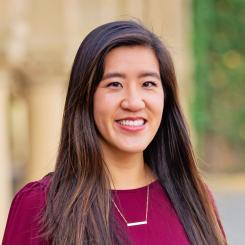
Christie Ko
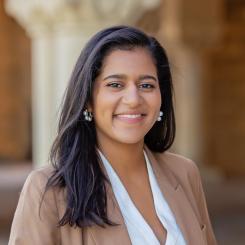
Holly McCall

Stefaan Verhulst
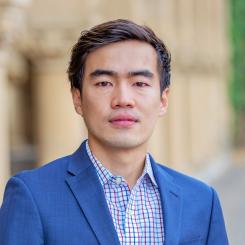
Daniel Zhang
Jury members.

Erik Brynjolfsson

Lisa Gevelber

Jana Juginovic

Nela Richardson
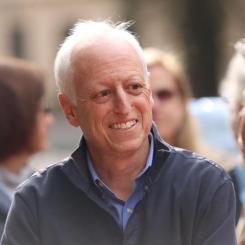
Gregory Rosston
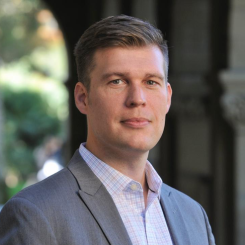
Russell Wald
The competition is open to Stanford graduate students from any discipline (i.e. computer science, engineering, social science, etc.) who are interested in developing policy-related knowledge and skills and whose research area intersects with emerging technologies.
Application closed on Wednesday, July 6, 2022 . Upon selection, candidates will be paired into teams of two where members across fields (e.g., social science, humanities, and STEM) are represented. The teams will work with advisers to develop policy briefs via a series of workshops and editorial processes.
Frequently Asked Questions
What is the competition’s timeline? Submissions of abstracts are due July 6, 2022. Selected candidates are notified by July 17, 2022, and will work with advisers over the subsequent seven weeks to workshop their ideas and write policy briefs. Winning teams will be announced in early September. Can I work on this alone? No. Candidates can submit initial abstracts individually, but upon submission, selections will be assigned to teams of two where members across fields (e.g., social science, humanities, and STEM) work on policy briefs together. As in the real world, interdisciplinary and multidisciplinary efforts are crucial to tackling challenging policy questions related to emerging technologies. What is a policy brief? A policy brief is a concise summary of information on a particular issue with analysis and recommendations to equip policymakers with the knowledge needed to think critically about and make decisions on said issue. A high-quality policy brief uses clear language to help non-specialist readers understand the thrust of a subject matter, communicating the practical implications of research to the policy audience. Find examples of HAI policy briefs . What makes for effective policy writing? Good policy writing is clear, concise, and engaging to read. Recommendations or bottom lines appear up-front so readers immediately grasp what the essential takeaways are. Read the Stanford HAI policy writing and style guidelines . How will policy briefs be evaluated? The jury will evaluate each brief based on its writing, analysis, and recommendations. Successful briefs should assess the technology from an analytical perspective, research its opportunities and challenges, diagnose its effect and implications, and recommend innovative interventions to positively steer its impact on job creation.
For questions, please contact us at [email protected] .
Innovation in Regulation: A Path Forward for U.S. Tech Competition with China — 2022 China Focus Essay Contest Winner

The 2022 China Focus Essay Contest English entries winners are William Yuen Yee, who recently graduated from Columbia University, and Natasha Lock, who is a recent graduate of Yenching Academy. Their essays answered timely questions in China and the United States regarding high-tech regulation and disinformation respectively. China Focus partnered with the UC-Fudan Center on Contemporary China and the 1990 institute to offer each winner $1000! Congratulations to our 2022 winners!
The essay question for the high-tech regulation topic is the following:
Both China and the U.S. face the challenge of large tech companies wielding huge influence in their respective economies and societies. How to regulate them without stifling growth or innovation is a key consideration for policymakers. Such regulations are also fraught with political and technological implications for both countries.
Write an essay that analyzes recent regulatory activities directed against large tech companies in both countries and considers their political, economic, or technological consequences. If appropriate, outline what principles should undergird a sensible regulatory framework that will promote innovation while protecting consumers.
Here is the entry from William Yuen Yee.
The opening line of U.S. Republican Senator Marco Rubio’s Twitter bio proudly boasts: “Banned in & sanctioned by China.” Rubio is well-known for his hardline stance against China, previously stonewalling President Joe Biden’s pick of veteran diplomat Nicholas Burns to serve as the U.S. ambassador to China because “ a weak ambassador is worse than no ambassador at all .” Yet when it comes to the issue of regulating large tech companies, Rubio shares a surprising amount in common with Chinese President Xi Jinping.
Xi calls it “ common prosperity ”; Rubio calls it “ common good capitalism .” While the two terms are rooted in highly distinct contexts and histories, both reject laissez-faire approaches to the markets and the economy. Both challenge the idea that what free, unrestrained markets determine to be most efficient is best — a premise that has mostly spread across the world since the 1980s, with the parallel ascents of Margaret Thatcher in Britain, Ronald Reagan in America, and Deng Xiaoping’s economic reforms in China.
But the realities of the hostile U.S-China relationship — likely at their lowest levels since before rapprochement in 1972 — make any genuine collaboration on issues related to technology regulation quite challenging, despite many areas of overlapping interests and perspectives. It is difficult to overlook China’s refusal to intervene and potentially prevent or at least publicly disavow Russia’s invasion of Ukraine. As such, the most feasible path forward for the U.S. lies in a two-pronged approach to this rapidly intensifying rivalry with China: promoting indigenous tech innovation at home and collaborating with the European Union on tech regulation. Otherwise, China and its non-democratic partners might soon overtake the West in both.
Common Prosperity and Unequal Growth
Under President Xi’s common prosperity campaign, China has sought to restrain the influence of big tech companies and reduce economic inequality. There have been over 50 regulatory actions against Chinese firms for alleged offenses like antitrust abuses and data privacy violations. Of course, such crackdowns do not come without serious consequences. Last July, authorities prevented the ride hailing startup Didi from registering new users and ordered app stores to remove its services amid a cybersecurity investigation. Didi subsequently reported an operating loss of $6.3 billion for the first nine months of 2021. The value of internet giant ByteDance, which oversees TikTok, has plummeted in private markets by over $50 billion .
China’s biggest companies have scrambled to line up behind the central government’s initiative and showcase their charitable bona fides. Last September, Alibaba announced that it would invest $15.5 billion in “common prosperity” projects like rural health care and insurance for delivery workers. Internet giant Tencent, which owns China’s largest messaging app WeChat, set aside $7.7 billion for a fund dedicated to improving health care coverage and rural economic development.
While countries across the world like China strive to regulate big tech companies, the United States “ dithers ” on the issue. Despite polls showing that 56 percent of Americans support increased restrictions on U.S. tech giants like Meta and Google, Washington has undertaken little action in this arena. U.S. big tech companies have shrewdly seized upon China as a convenient bogeyman to fend off criticisms about their increasingly monopolistic tendencies. Meta senior executive Sheryl Sandberg used what the Brookings Institution’s Tom Wheeler called the “competition with China” card in a CNBC interview , claiming that regulation would put the U.S. at a competitive marketplace and national security disadvantage to China.
It is true that America’s dearth of big tech restraints has helped pave the way for its leadership in innovation. America’s $1.8 trillion tech industry is the most valuable in the world and accounts for 33 percent of global market share. In 2021, American companies held eight of the top ten spots on the list of global companies ranked by market capitalization, including the top three: Apple, Microsoft, and Alphabet. No Chinese companies were listed in the top ten. The U.S. retains the edge in many critical technological areas like 5G, artificial intelligence (AI), quantum computing, and semiconductors “for now,” according to a Wall Street Journal analysis , although China’s massive investments in these fields are rapidly closing the gap.
But America’s tech superiority has not come without consequences. The United States boasts the largest levels of inequality among advanced countries, with the highest income inequality of all G7 nations in 2020. America’s top 1 percent own 35 percent of the nation’s wealth. Chief executive compensation increased by 937 percent between 1978 and 2013, while the average American worker’s compensation rose by just 10.2 percent during that same period, after adjusting for inflation.
Politicians and constituents across both sides of the U.S. political aisle seem to agree that the government must do more to constrain the influence of its tech giants. But with America’s enduring faith in free markets and historical mistrust of government intervention, such regulations will likely require time and piecemeal implementation.
Steps for Regulating U.S. Big Tech
Regulating big tech companies without stifling growth or innovation, particularly amid a rapidly intensifying geopolitical race for tech dominance, remains a preeminent challenge for U.S. policymakers. Still, it is time for Washington to turn its attention to this other critical aspect of the global tech race — to seize the initiative not just in innovation, but also in regulation.
Washington can start by targeting reforms in two areas: content moderation and privacy. One idea might be to target algorithmic amplification — harmful, addictive content that increases user engagement — by removing it from protection under Section 230 of the 1996 Communications Decency Act. Courts have interpreted this legislation as providing tech companies with mostly blanket immunity through “safe harbor” for harm caused by third party content. China unveiled a law with similar aims in June 2021 that requires parents to install software on personal electronic devices to protect their children from harmful Internet content and to manage their time spent online.
Another idea is to build upon the California Computer Privacy Act of 2020 and compel tech corporations to “opt-in” on data usage. Currently, consumers must actively “opt-out” of data collection and usage. This reform would shift the burden from consumers to corporations, requiring each company that holds personal data to obtain explicit permission from the user before using or transferring such data. The European Union’s General Data Protection Regulation (GDPR), the world’s strictest privacy and security law, took aim at a similar issue by requiring “anonymous” data collection, which EU regulators define as “irreversibly preventing identification of the data subject” accounting for all the means “reasonably likely to be used” for identification.
The Race for Global AI Regulation
In some respects, China has led the way on privacy and artificial intelligence regulation. The State Administration for Market Regulation, a government regulatory body, has proposed additional regulations that prohibit using data and algorithms that dictate user behavior or “hijack, traffic, interfere, or impose barriers” on the operations of other internet services. On March 1, China implemented what many consider to be the world’s most ambitious effort to regulate AI. Drafted by the Cyberspace Administration of China, the rules forbid companies from using personal information to offer users different prices for a product or service, imposing significant new restrictions on major ride-hailing, e-commerce, streaming, and social media companies.
The European Union has also proposed a sweeping new Artificial Intelligence Act to regulate AI. A preeminent regulatory superpower, Brussels previously implemented the General Data Protection Regulation to protect consumer privacy in 2018 and passed a Digital Markets Act in March that will significantly restrict the influence of tech giants across its bloc of 27 countries.
Russell Wald at Stanford’s Institute for Human-Centered Artificial Intelligence has described Washington as “ woefully behind ” in the global race over AI regulation. Former Google CEO Eric Schmidt recently noted that “China is producing more AI papers than the US.” An absence of U.S. leadership in this area risks allowing China to write the future global rules of the road. While American and European lawmakers tend to emphasize markets and individual rights, China has prioritized its own conception of societal wellbeing, a significant distinction that has and will continue to influence its AI regulatory principles. To the winners of the race for regulation will go the spoils of the ability to shape AI governance regimes worldwide.
Time for Innovation in Regulation
First, the U.S. should start by collaborating with the EU on the Artificial Intelligence Act. Proposed in April 2021, this landmark legislation requires software developers using “ high risk ” AI like facial recognition and biometric identification technologies to comply with a comprehensive list of technical and auditing requirements. While such regulations have discomfited some in Washington, U.S. businesses will likely inevitably have to conform to these to access the lucrative European market. There is broad agreement between Brussels and Washington on the importance of promoting ethical AI, although both sides differ on how to achieve that objective. No matter the disagreements, the geostrategic implications of regulating critical technologies like AI should drive the two blocs together. Both share a substantial interest in preventing the spread and use of AI technologies by authoritarian states like China and Russia for mass surveillance.
Second, the United States and European Union should work together to promote overall active democratic governance of technology through the new EU-U.S. Trade and Technology Council. Again, a significant area of common interest and vital strategic importance lies in artificial intelligence. “Whoever leads the world in artificial intelligence in 2030 will rule the world until 2100,” one Brookings Institution analysis noted . The U.S. and EU should proactively share information between national standard setting bodies and develop consistent processes and criteria for assessing AI systems. Such work aligns with the Biden administration’s aims to advance technology for democracy , a top agenda priority at the U.S.-led Summit for Democracy last December.
Third, it is time for U.S. policymakers to vigorously question some of the fundamental economic assumptions that underpinned the “Washington Consensus” of the 1980s. The emphasis on lowering corporate income taxes and deregulation, mixed with a strident belief that private firms know better than the government, is ripe for reform. Enhanced scrutiny of Milton Friedman’s “shareholder primacy” doctrine will pave a path forward for U.S. regulation on big tech. Passing the bipartisan legislation introduced by Democratic Senator Amy Klobuchar and Republican Senator Chuck Grassley, which aims to address concerns about tech giants serving as gatekeepers to digital goods and services, is a promising start. The challenge before the United States is multifaceted. While it may be desirable, U.S.-China cooperation on tech regulation seems politically infeasible for the foreseeable future. Kurt Campbell, The Biden administration’s “Asia czar,” has declared Washington’s era of engagement with Beijing to be over. President Biden’s competitive and confrontational China policy, not too dissimilar from that of his predecessor, reflects a growing bipartisan consensus among Washington policymakers — and people across this country — that the U.S. should not work to “change” China but rather to “ beat it .” In this realpolitik vein, the options for collaboration between Washington and Beijing on regulating tech giants, despite shared concerns about their disproportionate influence, are limited. For now, the U.S. should bolster innovation at home to remain atop the race for global tech supremacy while collaborating with the EU to regulate areas of common interest like artificial intelligence — before China leads the world in both.
Image Source: Bangkok Post
Subscribe to us to receive our China Focus Newsletters!
- A New Era of Chinese Technology and Innovation- Tai Ming Cheung
- Biden Administration’s Secret Ingredient for China: Human Rights on Export Control – Sanghyun Han
- Didi’s Delisting: Implications for the Future of US-listed Chinese Stocks? – TszWang (Sam) Yeung
- From Win-Win to Lose-Lose: how technology is reshaping U.S.-China relations – Kyi Yeung Goh
- Latest Posts

William Yuen Yee
Latest posts by william yuen yee ( see all ).
- Innovation in Regulation: A Path Forward for U.S. Tech Competition with China — 2022 China Focus Essay Contest Winner - June 17, 2022
- Trading Places: China’s Expanding Influence in International Trade and the World Trade Organization - April 28, 2021

Start typing and press Enter to search

10 Break-Out Sessions
- Time: 3:30 pm - 4:30 pm
India is undergoing its economic, technological and demographic transition simultaneously. An old country is becoming youthful and adventurous with the passage of time. Young Indians like OYO founder Ritesh Agarwal are quietly taking charge of Indian ethos by becoming icons of audacious aspirations and tangible proofs of its potential, spawning startups that are becoming most valuable and famous than many legacy companies. How can young revolutionaries find ways to carry the older generation of investors, regulators, workers and consumers with them and what can other economies and founders learn from India’s momentous transition?
For over 50 years teams of student have volunteered to organise the St. Gallen Symposium. They have written countless invitations, met thousands of partners, and welcomed some of the most important personalities of their time on stage. Together with former members of the ISC we will reflect on the St. Gallen Symposium experience of cross-generational dialogue and collaboration, the lessons they have learned for their lives and on how the symposium has evolved. This session is organised together with ISC Alumni.
As the need for innovation is growing, the routinisation of well-structured creative processes within organizations is key for concurrent value creation. Prof. Susan Goldsworthy of IMD, this year's St. Gallen Symposium artist Javiera Estrada and Light Artist Gerry Hofstetter will discuss the role of collaboration in the creative process. Together, and in conversation with the audience, they’ll explore the way collaboration can drive creativity in various organisational contexts, and, on the other hand, the role of introversion and lone contemplation in creating something new.
Many employee volunteering and giving programs are presented as an employee perk, similar to casual Fridays or a team-building event. But treating workplace giving and volunteering this way fails to fully capitalise on the great potential of such programs: to foster employee personal growth, and address key societal challenges. The panel will particularly explore the potential of skills-based volunteering, its benefits, and the unique challenges that arise when moving from merely transactional volunteering to something far more transformative.
The investment landscape over the next twenty years will be radically different from previous generations. While there appears to be greater access to capital, there also appears to be much more volatility and debt with no clear dominant financing mechanism. Entrepreneurs, VC, Private Equity, and banks will have to find new ways to work together to create growth and stimulate innovation. How can investors and entrepreneurs better collaborate and find mutually beneficial agreements that balance risk and return?
The fashion industry accounts for 10% of humanity’s annual carbon emissions – more than all international flights and maritime shipping combined. For long, the fashion and luxury watchmaking industry drove, together with the fashion media industry, unsustainable dynamics in the sector: generating more and more demand through an artificial cycle of new collections and seasonal trends. Businesses’ marketing, media as well as influencers thereby create a constant longing and demand for their products. How can designers, fashion houses and publishers exit this vicious cycle and, collaboratively, drive the transition towards more sustainable and ethical fashion and luxury watchmaking?
Media diversity, freedom of the press and freedom of expression in Europe are currently under threat. Journalists and independent media companies are increasingly joining forces across borders to respond to such challenges as well as to be able to continue to offer independent quality journalism in the future. This session will identify learnings from new media partnerships such as the Leading European Newspaper Alliance (LENA) and the Organised Crime and Corruption Reporting Project (OCCRP) to identify how media can most effectively work together.
Technology, innovation, and entrepreneurship are key drivers of the modern economy and social mobility. Given their importance, we should strive to improve accessibility to tech, education and entrepreneurship across all backgrounds. Creating open and inclusive communities, especially with tech is important to accomplishing this goal, but it is easier said that done. Simultaneously, a third iteration of the internet – Web3 – has the potential to radically transform the internet of things and reduce barriers to access. How can these forces be effectively harnessed and directed for the benefit of all people and move the world forward?
Over the past decades, the tech sector, especially the internet of things, has become a central component of modern economies. Trying to catch up with the exponential pace of technological development, the US, China, and Europe are crafting rules of the game on digital markets. What are the emerging characteristic differences between regulatory regimes of digital markets, in the US, Europe and beyond, and how do they balance innovation and regulation? In light of strategic competition over tech dominance between the US and China, what are the opportunities and challenges for Europe in particular?
The Covid-19 pandemic has changed the world of work forever. The fast and widespread adoption of remote work and an ever-increasing concern of employees with purpose and meaning on their job have intensified the war for talents. Reaching out to and concurrently engaging employees is key for businesses across sectors and regions. What learnings can be drawn from the pandemic as regards our approach to work? Has the world of work changed for the better? And what role does leadership culture and a new approach to hiring play going forward?
- A Demographic Revolution: Young India Takes Charge (with All India Management Association) 9:00 am - 10:00 am
- Collaborative Advantage Across Generations: Reflecting on the SGS Experience (ISC Alumni) 9:00 am - 10:00 am
- Collective Genius? Cultivating Creativity in the Arts and Beyond 9:00 am - 10:00 am
- Connecting Business with Purpose: The Potential of Skills-Based Volunteering 9:00 am - 10:00 am
- Financing the Next Generation of Entrepreneurs 10:00 am - 11:00 am
- Hacking the Fashion & Luxury Watchmaking Industry towards more Sustainability (with Condé Nast College) 10:00 am - 11:00 am
- M100 Sanssouci Colloquium@St. Gallen: Media’s New Power: More Impact Through Collaborative Journalism 10:00 am - 11:00 am
- Democratizing Access to the next Generation of Technology and Innovation: Communities and Radical Transformation 10:00 am - 11:00 am
- Varieties of Tech Capitalism: Europe's Approach to Innovation and Regulation in a Global Context 11:00 am - 12:00 pm
- Changed for Good? Engaging with the New World of Work 11:00 am - 12:00 pm
Sign up for our Newsletter

Global Essay Competition
Compete in our Global Essay Competition and qualify for participation as a Leader of Tomorrow in the world’s premier opportunity for cross-generational debates: The St. Gallen Symposium.
Meet 300 of society’s brightest young minds. Present and debate your ideas with 600 senior leaders. Be inspired by some of the world’s most impressive speakers. Gain a unique and new perspective on this year’s topic. Become a member of a unique global community. Participate in the symposium with us. Win prize money of CHF 20,000 split amongst the three winners.
Topic Question
Striving for more or thriving with less – what pressing scarcity do you see, and how do you suggest to tackle it.
Scarcity generally refers to a situation where human needs exceed available resources . This year’s Global Essay Competition invites young leaders worldwide to focus on a specific contemporary or future challenge related to scarcity and propose an innovative way to address it.
Be creative in thinking about proposed solutions: do we need to strive for more and find ways to boost the availability of the resource in question? Or does it focus on ways to thrive with less and thus rethink our needs and demand?
Be free in choosing which scarce resource you focus on: examples include – but are NOT limited to – human labour, capital, natural resources, or intangibles like time, creativity, or care. Be bold and precise in describing a contemporary or future challenge of scarcity and the specific kind of resources you focus on, and offer a concrete and actionable idea of how we should confront it.
Registration window for the GEC for the 53rd St. Gallen Symposium is closed.
If problems occur during registration, please clear your cached images and files in your browsing history or consider using the browser Google Chrome. If you still cannot apply, use the following link. For any unanswered questions please contact us via e-mail at [email protected]
Prerequisites
Qualify with an excellent essay.
We expect a professional, creative and thought-provoking essay. Be bold, unconventional, and distinctive on the competition question.
For your contribution to be valid, the following criteria must be met
Check your eligibility and prepare documents, to be eligible, you must fulfill all of the following criteria:.
- Enrolled in a graduate or postgraduate programme (master level or higher) in any field of study at a regular university
- Born in 1994 or later
Make sure you can provide the following documents:
- Copy of passport or other identification (in English for non-Roman languages)
- Confirmation of matriculation/enrolment from your university which proves your enrollment in a graduate/postgraduate level programme as of 1 February 2024 (download sample document here )
- Your contribution file with no indication of your name in the file name, the file metadata or the file itself
Meet us and ask your questions!
Meet our student representatives to learn how you can qualify for a participation in the 53 rd St. Gallen Symposium. We will have physical presentations at your university again as well as regular webinars to answer your questions!
Accompanying a Leader of Tomorrow
General questions, who can compete for a participation as a leader of tomorrow at the st. gallen symposium.
Students enrolled at a regular university, who are matriculated in a graduate or postgraduate programme.
What is the St. Gallen Global Essay Competition?
The St. Gallen Global Essay Competition is a global student essay competition, offering students who study at graduate or postgraduate level around the world the opportunity to apply for participation at the St. Gallen Symposium.
What is the Knowledge Pool?
The Knowledge Pool is a group of Leaders of Tomorrow with a strong affiliation to topics of relevance to the St. Gallen Symposium. They show outstanding track records in the particular fields they work or study. They are hand-selected by the International Students’ Committee. It is not possible to apply for membership in the Knowledge Pool.
How much does it cost to participate?
The participation in the symposium is free for all Leaders of Tomorrow. Moreover, expenses for travel, board and lodging are covered by the ISC. However, we recommend bringing a small amount of pocket money for your convenience.
Essay Competition
Who is eligible for the 54 th st. gallen symposium.
Students enrolled at a regular university, who are matriculated in a graduate or postgraduate programme as of 1 February 2025, from any field of study, born in 1995 or later.
What is a “regular university”?
In the context of the Global Essay Competition, a regular university is defined as an institution of higher education that also conducts research and offers at least one PhD programme. Exceptions are possible and are granted on a case-by-case basis.
Can Bachelor students participate?
Unfortunately, students on bachelor level do not fulfil the eligibility criteria and therefore cannot enter the competition. There is no other way to apply for participation and we, therefore, encourage all students to join the competition once they pursue with their studies at a graduate level. You may, however, be eligible if the level of study in your current year is equivalent to international graduate level which must be confirmed in writing by your university.
Can teams participate?
Only individual submissions are allowed as we can only grant participation to one contender per contribution.
How long should the contribution be?
The maximum amount of words is 2,100 (excluding bibliography or graph descriptions and the like). There is no minimum word count. Please make sure to state the exact word count in your document. Also keep in mind that you must not state your name in the contribution.
Do I have to quote my sources?
All sources must be quoted and all essays are scanned for plagiarism. You must refer each source to the respective text passage. Please note that plagiarism is a serious offense and that we reserve the right to take further steps in case of deliberate fraud. Self-plagiarism will also result in disqualification, as the work has to be written exclusively for the Global Essay Competition of the St. Gallen Symposium.
Can I have a look at previous Winner Essays?
Yes, you can find winner essays as well as other publications from the Global Essay Competition here .
What file formats are accepted?
Please make sure to hand in your essay in either a doc, docx or pdf format. The document must allow to copy the text easily (no document protections).
What documents do I need to submit?
In addition to your contribution, make sure to upload
- a copy of your passport (or any other official government ID but no driver’s license) to verify your age
- a confirmation of matriculation from your university confirming your graduate or postgraduate student status as of February 2023
- a short abstract (200–300 words) which can be entered in the registration form directly
in the applicable field of the registration form.
What happens after I submitted my application?
The ISC will verify your eligibility and check all submitted documents for completeness and readability. Due to the large amount of essays we receive, our response may take some time, so thank you for your patience. If the jury selects your essay in the top 100 , you qualify as a Leader of Tomorrow for an expenses-paid participation in the 52 nd St. Gallen Symposium (4-5 May 2023). The results will be announced via e-mail by mid-March 2023. The jury selects the three awardees based on the quality of the idea on paper. The award is endowed with a total prize money of CHF 20,000. In addition, there will be a chance for the very best competitors (including the awardees) to present their ideas on the big stage at the symposium. For this, the students will be asked to pitch their idea on video beforehand.
Who’s in the jury?
The Award Jury consists of leading executives, journalists and professors from all around the world. The Academic Jury is composed of young top academics from the University of St. Gallen and the ETH Zurich.
When will the results be announced?
The jury’s decision will be announced by mid-March at the latest.
Participation
How do the travel arrangements work.
The organizing committee will get in touch with you prior to the symposium to discuss your itinerary and to book your travel.
Can the organising committee help me get a visa?
All Leaders of Tomorrow are self-responsible to get a visa. However, we will inform the applicable Swiss embassy about the invitation and will provide you with the necessary documents. Should a problem arise anyway, we are happy to help. Expenses for visa application are borne by the Leaders of Tomorrow themselves.
Where am I accommodated during the symposium?
All Leaders of Tomorrow are accommodated at private student flats across the city. Please give us an early notice should you have any special requirements (e.g. female flatmates only).
What transport is provided?
We book flights or train tickets and provide shuttle service from and to the airport. Furthermore, all Leaders of Tomorrow receive a free ticket for the public transport in St. Gallen during the week of the symposium.
How much money do I need?
We recommend bringing some pocket money (CHF 100–200) for your convenience. Please note that depending on your time of arrival and departure, some meals might not be covered.
Can disabled people participate as well?
Yes, of course. Most of the symposium sites are wheelchair-accessible and we are more than happy to help where we can. Although our ability to provide personal assistance is very limited, we do our best to provide the necessary services.

Is there any touristic programme and do I have time for sightseeing?
During the symposium there will be no time for sightseeing. However, we may offer selected touristic programmes a day before or after the symposium. These days can, of course, also be used for individual sightseeing. Nearby sites include the old town of St. Gallen, the lake Constance and the mountain Säntis.
Can I extend my stay in Switzerland?
Yes, upon request we can move your return flight to a date of your choice. If the new flight is more expensive, we may ask you to cover the price difference. Please note that we are unable to provide any services such as accommodation or transportation after the end of the symposium week.
Can I bring a spouse?
Unfortunately, we cannot provide any services such as travel, room, board or symposium access to any additional person.
Past Winners & Essay Reviews
Out of approx. 1,000 annual contributions submitted by graduate and post-graduate students from all around the globe, the jury selects three winner essays every year. Meet our competition’s past winners and read their contributions.
2023 – A New Generational Contract
Elliot gunn, gaurav kamath, megan murphy, essay question:.
The best or worst legacy from previous generations: How to preserve or replace it?
A great deal of our lives is influenced by when we were born. As those currently alive, we have inherited the world which previous and older generations have built. We owe a great deal to the efforts of our forebears, but we also inherit problematic legacies.
2022 – Collaborative Advantage
Sophie lara neuber, anton meier, bryan kwang shing tan.
Collaborative Advantage: what should be written into a new intergenerational contract?
The idea of a “generational contract” embodies the principles that younger and older generations rely on each other to provide mutual support across different stages of their lives. Inclusive education systems, sustainable welfare states and meaningful environmental action are some of many challenges requiring a cross-generational collaborative effort. Yet, with the climate crisis, rapid technological change and societal aging in many countries, the generational contract and notions of intergenerational fairness have been challenged. Members of the younger generation are raising their voices as they reflect on how their futures are being compromised by current decision-makers.
What’s your specific and actionable idea that should be written into a new generational contract? Choose an area where you see evidence that intergenerational fairness is – or, going forward, will be – challenged and where the generational contract needs to be rewritten. Potential areas include, but are not limited to, business strategy and the economy, inclusive governance and education, the welfare state and health care, environmental sustainability, or the world of work. Describe your problem and offer concrete and practical proposals how inter-generational fairness can be restored or reinvented. Explain your idea’s impact for the future.
2021 – Trust Matters
Janz irvin chiang.
1st place – Peking University
Joan Nyangena
2nd place – York University
Karl Michael Braun
3rd place – Albert-Ludwigs-Universität Freiburg
A Matter of Trust: How Can Trust be Repaired When It’s Lost?
In recent years, we have seen many reports about “trust crises” in the realms of politics, health, business, technology, science, and media. Political and corporate scandals, mass protests, and deteriorating trust indicators in global perception surveys support this diagnosis. As a result, senior leaders in many of these sectors publicly aspire to “rebuild trust” in their decisions, products, or institutions. What would be your advice to them?
Choose an area in one of the above-mentioned sectors where you see evidence that citizens’, consumers’, regulators’, employees’ or other stakeholders’ trust has been lost. Describe your example of an apparent loss of trust; offer concrete and practical proposals on repairing damaged trust. Describe your idea’s impact for the future.
2020 – Freedom Revisited
Symposium postponed.
As a consequence of the COVID-19 pandemic, the final review and communication of the results of the contributions to the Global Essay Competition was stopped prematurely.
Freedom Revisited: Which aspects of freedom need to be defended, or recalibrated, to meet the challenges of our time?
Domestically and on the international stage, values of individual, economic, and political freedom are subject to critical inquiry or outright attack. Diverse phenomena such as populism, global power shifts, climate change, the digital revolution, and global migration call for a reflection on the value of freedom for the way we live, do business, and organize politically in the years ahead. While some call for a defence of established freedoms, others call for recalibration of our concept of freedom, or the balance we strike between freedom and other values, such as equality, sustainability, and security. Where do you stand in this debate? Choose one of the following positions as you develop your essay:
In defence of freedom: Choose an area in the realm of business, economics, politics, or civil society where current concepts of freedom are under pressure and where they need to be defended. Describe the problem and offer a concrete and practical proposition of how established concepts of freedom should – and can be – defended. Describe its impact for the future.
In defence of recalibrating freedom: Choose an area in the realms of business, economics, politics or civil society where current concepts of freedom are unsuitable for the challenges we face and where they need to be recalibrated. Describe the problem and offer a concrete and practical proposition of how established concepts of freedom should and can be recalibrated. Describe its impact for the future.
2019 – Capital for Purpose
Reuben muhindi wambui (ke).
1st place – The Graduate Institute of International and Development Studies
Natalie Hei Tung Lau (HK)
2nd place – University of Pennsylvania
Toan Do (VN)
3rd place – Yale University
Is it as good as it gets? – What approach would you suggest to change the current purpose of capital?
Political volatility, environmental issues, precarious labour markets, technological monopolies, managerial and investment short-termism are only a few challenges we face. The time has come to counter excessive short-termism and start doing business as unusual. Think about the status quo and its implications. What would be an idea to change it? Develop projects or actions you would trust in to bring new and expanded purposes to capital and aim for a long-term positive impact. In your essay you should consider how the use of capital (financial, human, social,…) can solve complex challenges and address substantial changes, be it by individuals, civil society, businesses or governments. Your idea must inspire leaders worldwide to take on responsibility and put it into practice. Be bold and develop a truly impactful concept to win our prestigious award.
2009 – 2018
2018 – beyond the end of work, nat ware (au).
1st place – University of Oxford
Janis Goldschmidt (DE)
João abreu (br).
3rd place – Harvard University
Robots are coming for your job. How do you augment yourself to stay economically relevant?
Author Yuval Noah Harari claims that the rapid progress of artificial intelligence technology will render the human species economically useless within decades. Imagine a world in which humans fight back, harnessing AI and other technologies to stay economically indispensable – and, ultimately, competitive against the computers. Describe the job you aspire to in the future, how it will potentially be influenced by AI, and how you would augment yourself technologically if necessary to prevail in your chosen career.
2017 – The dilemma of disruption
1st Place – University of Oxford
Benjamin Hofmann (DE)
2nd Place – University of St. Gallen
Sigin Ojulu (SS)
3rd Place – University of Southern California
Breaking the status quo – What’s YOUR disruptive idea?
The notion of disruption captures today’s innovation zeitgeist. Nowadays, it seems everyone claims to be a disruptor – particularly young people with an entrepreneurial mindset. Let’s think beyond disruptive innovation in management and look at disruption more generally as something that breaks the status quo – be it in business, politics, science, or society. Pick the one of these four fields you are most passionate about, identify a problem of greater magnitude and come up with a disruptive idea to solve it. Your idea must aspire to inspire top-notch leaders worldwide. Do not free ride on the buzzword “disruption” but rather be bold and develop a truly novel and radical concept to win our prestigious award.
2016 – Growth – the good, the bad, and the ugly
Schima labitsch (at).
1st place – Fordham University
Alexandra Ettlin (CH)
2nd place – University of St.Gallen
Colin Miller (US)
3rd place – New York University
What are alternatives to economic growth?
2015 – Proudly Small
Laya maheshwari (in).
1st place – London School of Economic
Leon Schreiber (ZA)
2nd place – Freie Universität Berlin
Katharina Schramm (DE)
3rd place – University of St.Gallen
Essay Questions:
- What is the next small BIG thing?
Think about unconventional ideas, undiscovered trends or peripheral signals that may turn into ground-breaking changes for societies. Present one idea which is not on the radar of current leaders yet but will change the game in business, politics or civil society – the best ones will be put to the test by the global audience of the St. Gallen Symposium.
- Collaborative Small State Initiative
Although small states lead the global rankings in international benchmark studies on competitiveness, innovation and wealth, they are often politically marginalised. Explore a common agenda for small and prosperous countries and identify one joint project that would increase the relevance of small states on the global stage. Go beyond politics and diplomacy by also including economic and civil players.
- Elites: small but superior groups rule the world – at what price?
Human history shows that the world has been ruled by tiny but superior groups of people. It is the elites who have been controlling societies and the allocation of resources. Given the rise of inequality, a devastating level of famine that still exists, ubiquitous corrupt systems of government, limited access to education for the underprivileged, to name just a few of the world’s greatest problems, elites are challenged to redefine their roles and agenda settings. Share your thoughts on how elites are supposed to emerge and transform in the 21st century.
2014 – The Clash of Generations
Ashwinikumar singh (in).
1st place – University of Mumbai
Martin Seneviratne (AU)
2nd place – University of Sydney
Set Ying Ting (MY)
3rd place – National University of Singapore
- Balancing Generational Claims
The presumption of an altruistic relation between generations and its positive effect on the economic well-being of societies is illusionary. Welfare states have widened fiscal gaps to an irreparable extent for the next generations. When aspiring to a sustainable welfare system, how should intergenerational claims balance without having to rely on selflessness?
- A Double-Edged Legacy
Let’s be frank: The generational contract has failed everywhere – but for different reasons. Exuberant public debts, zooming healthcare costs, unequal distribution of wealth, loss of ethical and moral anchors, loss of trust in existing institutions: each state is facing a unique set of problems. Briefly describe the situation in your country and propose a generational contract defining mutual responsibilities on an economic and social level.
- A Prospect for the Young
Highly educated and ambitious, yet unemployed. A whole generation of young is entering the labour market with little prospect of success. The implications go way beyond individual tragedies as economies with lasting high levels of youth unemployment risk social instability. Present new solutions on how we can overcome this crisis.
- Business between Generations
Slogans like “rent is the new own” or Botsmann and Rogers’s “what’s mine is yours” (HarperBusiness, 2010) mark the trend of shared economy. Although not a new economic phenomenon per se, particularly the Millennials are embracing this attitude towards doing business where they value access over ownership. The trend is gaining global mainstream acceptance which is resulting in a lasting impact on economic performance. Discuss the future of shared economy, its overall implications and the dynamics between supply and demand.
2013 – Rewarding Courage
Kilian semmelmann (de).
1st place – Ludwig-Maximilians-Universität München
Dragov Radoslav (BG)
2nd place – Rotterdam School of Management
Bree Romuld (AU)
3rd place – University of St.Gallen (HSG)
The competitors must choose from one of four competition questions, which refer to the four topic clusters “Putting incentives right”, “Coping with institutions”, “Against the current – courageous people” and “Management of excellence”
- Putting incentives right
How come that both in the corporate world and in politics, responsible courage (e.g. whistleblowing, courage to disagree with current paradigms, etc.) is hardly ever rewarded? Where the big decisions for the future are taken, anxiety, conformity and despondence prevail. How can this be changed?
- Coping with institutions
Institutions of all kinds shape our behaviour – be it economic, political or social behaviour. How should institutions be designed in order to foster a sustainable economic and social development?
- Against the current – courageous people
Observers lament that younger generations, as individualistic as they are, tend to settle for a highly streamlined social and economic world that does not ask for big decisions or unconventional thinking. Please share your opinion on this observation and explain why you agree or disagree. Please use examples that support your arguments.
- Management of excellence
New insights can only flourish within a culture of dialogue in different opinions. No assumptions should be taken for granted nor should there be any unquestioned truth. However, most people (decision makers, managers, students, etc.) often fail to deal constructively with conflicting opinions. How can companies encourage their employees to build a healthy attitude towards unconventional thinking and acting?
2012 – Facing Risk
Rodrigues caren (in).
1st place – St. Joseph’s Institute of Management
Jennifer Miksch (DE)
2nd place – Geneva Graduate Institute
Jelena Petrovic (SR)
3rd place – King’s College London
Detecting Risks
- The methodological tools that allow early detection of what will shape future trends are pivotal. While risks are emerging faster, these tools still need fostered advancement. What is the role of scenario planning and forecasting methods and who is or should be responsible for these aspects in the organisation? How should the detection of risks be addressed in an increasingly complex and interconnected global landscape?
Risk Aversion
- In wealthy societies, most people tend to suppress risk taking. Given this increasing trend of risk aversion in saturated societies, what are the long term consequences for economy and society? What are the long term consequences of a high level of risk aversion?
Emerging Risks
- There are tremendous risks facing the global community and many people have not yet become aware of their potential consequences (e.g. public debt burden). What are the societal, economic and/or political risks your generation of decision makers will be facing in the future? How could you convert these risks into opportunities?
Managing Risk
- There is often a disconnect between taking risks and bearing the burden of the consequences of doing so (e.g. risk taking in investment banking). Who should bear the consequences of negligent risk taking and why? How can healthy risk taking be fostered in wealthy societies?
2011 – Just Power
Marcelo ber (ar).
1st place – New York University
Dhru Kanan Amal (IN)
2nd place – London School of Economics
Maria de los Angeles Lasa (AR)
3rd place – Università di Camerino
- Justice and Power
- Rethinking Leadership
- Public Goods and Values
We asked you to contribute visions and ideas to the theme “Just Power” – Power in the sense of its use in various areas of politics and economics. We expected a professional work which could be an essay, a scenario, a project report or proposal, a multi- media presentation or an entrepreneurial concept. It should be constructive, provocative or instructive, inspiring thoughts and actions as well as introucing new approaches and unconventional ideas. Within the framework of the theme you may choose between three subtopics for your contribution.
2010 – Entrepreneurs – Agents of Change
Ainur begim (kz).
1st place – University of Oslo
James Clear (USA)
Christoph birkholz (de).
- What makes an entrepreneur an “agent of change”?
- Changing of the guard: Who are the new entrepreneurs?
- Corporate entrepreneurship within large companies: a concept for the future or a mere pie in the sky?
- Entrepreneurship between environmental risks and opportunities: What does it take to succeed?
2009 – Revival of Political and Economic Boundaries
Shofwan al-banna choiruzzad (id), jason george (us), aris trantidis (gr), 1999 – 2008, 2008 – global capitalism – local values, guillaume darier (ch), jacobus cilliers (za), feerasta aniqa (nz), christoph matthias paret (de), 2007 – the power of natural resources, benjamin block (us), gustav borgefalk (se), kevin chua (ph), 2006 – inspiring europe, maximilian freier (de), chen yesh (sg), elidor mëhilli (al), william english (us), 2005 – liberty, trust and responsibility, christian h. harding (de), luana badiu (ro), norbert jungmichel (de), fabien curto millet (es /fr), 2004 – the challenges to growth and prosperity, ravi rauniyar (np), peter g. kirchschläger (at / ch), xin dong (cn), 2003 – seeking responses in times of uncertainty, stefanie klein (de), rosita shivacheva (bg), 2002 – pushing limits – questioning goals, constantine (dino) asproloupos (ca / gr), manita jitngarmkusol (th), 2001 – new balance of power, marion mühlberger (at), uwe seibel (de), moses ekra (ci / ca), gerald tan (my), 2000 – time, martin von brocke (de), pei-fu hsieh (tw), tzvetelina tzvetkova (bg), 1999 – new markets, new technologies, new skills, peter doralt (fr), valérie feldmann (de), rajen makhijani (in).
“Partaking in the competition was one of the best decisions I’ve ever made. Not only was I able to come to St. Gallen and meet incredible young entrepreneurs and leaders who I’m still in contact with, but it provided me the opportunity to develop and share ideas with key decision-makers. The main idea I submitted was for a new way to finance retraining and healthcare at no cost to individuals or governments. Given the COVID- 19 pandemic, this idea is needed now more than ever, so I’m currently implementing the idea through a new organization I’ve established called FORTE ( Financing Of Return To Employment ).” NAT WARE , Founder & CEO of FORTE, Leader of Tomorrow at the 47th and 48th St. Gallen Symposium
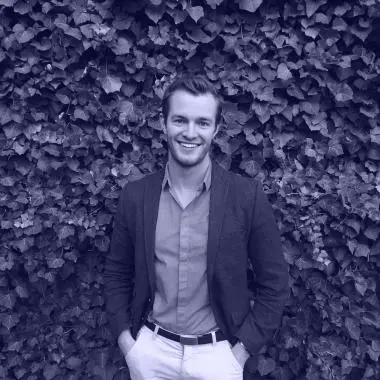
Table of Contents
Take a look at one of this year’s winning entries to the Immerse Education Essay Competition from the Creative Writing category. Congratulations to all participants and in particular to those who have won 100% scholarships!
Which key attributes make a protagonist likeable?
Protagonists shape the way we interact with stories. They become our immediate association with a series or perspective – Harry Potter memorably recalled by its titular figure – and their memorable attributes accumulate iconic significance over time – such as the emergence of ‘Bah. Humbug!’ as a loveably universal aphorism.
Likeable protagonists form the eyes we see narratives through attracting our empathy and admiration through a mix of relatability, growth, and iconic memorability. These protagonists often embody a liminal dual role of relatable and aspirational quality. Author Amanda Skenandore cites a mix of ‘all-too human flaws and larger-than-life qualities’ [1] to construct a grounded, likeable protagonist. This hybridised concept is manifest quite literally in the mischievous student/talented wizard- ‘Chosen One’ Harry Potter. Sadie Hoagland extends this tenet through her assertation of powerful, ‘revealable’ characters [2]. Authors may also embrace a relatable image of ‘nuanced, human selves’ through initially complex or murky characterisation, leading to cathartic ‘reveals’ or vicarious self-discovery throughout a series; the magical backstory of Jackson and Potter intensifies and symbolises their own, otherwise relatable ‘coming-of-age’ arcs.
Contrasting consistently familiar qualities, to be likeable, protagonists must also be fluid. Protagonists, coined by Barthes as the ‘accomplices’ to discourse [3], mirror the progression of narrative: microcosmically modelling thematic change. Harry Potter’s role as a primarily relatable insert of the audience into the wizarding world expands as stakes grow higher- culminating in his self-realisation after Dumbledore’s death, and eventual legacy/family of his own. Scrooge initially commands little sympathy, yet in fable-like fashion comes to epitomise lofty ideals of Christmas cheer, courting the favour of both moralistic Christian and generally festive readers [4].
Conversely, gradually corrupted, less-reliable characters, consumed by Robert Garner McBrearty’s concepts of ‘strong longings’ [5], attract the adoration of immersed readers. Aristotle notes in Poetics that heroes should be ‘consistently inconsistent’ [6] with flaws, even fatal hamartia, which reads as engaging and, to some degree, justified. In Rebecca, the obsessive, morally grey unnamed narrator commands our loyalty through ambiguating resurged Gothic fantasy and deceptive reality- even as Mrs de Winter grows disconnected from logic and reality, her amplified human desires engender a likeability in her eventual self-determination- ‘I am Mrs de Winter’ [7]. Protagonists, as they evolve and shift, embrace an essentially human fluidity and fragility, captivating audiences to engage with their journey.
Ultimately, likeable protagonists are memorable: they encourage devotion and engagement in the reader. McBrearty notes effective protagonists ‘surprise us!’ [5]; even subtly, they subvert. In conservative Victorian Britain, Scrooge’s arc of humanist redemption embodies revolutionary empowerment and individual autonomy. Harry Potter’s adolescent struggles, recontextualised into fantasy fiction, achieve a memorable rendition of relatable human experience. In Rebecca, the distinctive voice of an ironically unnamed narrator – ‘Last night I dreamt I went to Manderley again’ [8] – constructs a dark, psychological reflection on self-determination [9].
Each protagonist exemplifies an essentially relatable body of social ideas through distinctive, iconic individual voice- resonating with readers, and inspiring likeability. The popularity of Harry Potter, A Christmas Carol and Rebecca is evidenced by countless contemporary engagements in fanfiction, and even reinterpretations in film. Each uniquely likeable protagonist – Harry Potter as an audience stand-in; Scrooge as an allegorical parable of redemption; and Mrs de Winter as an abject reflection of shadowed Romanic urges – exemplifies reliability, fluidity and memorability to impress their engaging narrative message, embodying a character ultimately ‘worthy of readers’ investment’ [10].
Bibliography
Aristotle. “Poetics”. In The Internet Classics Archive. Translated by S. H. Butcher. 350BCE. 2009. [classics.mit.edu/Aristotle/poetics.1.1.html last accessed: 26th August 2022].
Barthes, Roland. “The Reality Effect.” In The Rustle of Language. Transcribed by Richard Miller. New York: Hill and Wang, 1986.
Cox, Don Richard. and Gilbert, Elliot L. “Scrooge’s Conversion”. PMLA, 90:5 (1975): 922-924. Du Maurier, Daphne. “Rebecca”. London: Virago Press, 2018.
Hoagland, Sadie. “What makes a good protagonist?”. Interviewed by Jack Smith. The Writer. 15 Nov. [https://writermag.com/improve-your-writing/fiction/what-makes-a-good-protagonist/ last accessed: 26th August 2022].
Linkin, Harriet Kramer. “The Deceptively Strategic Narrator of “Rebecca””. Journal of Narrative Theory, 46:2 (2016): 223-253.
McBrearty, Robert Garner. “What makes a good protagonist?”. Interviewed by Jack Smith. The Writer. 15 Nov. 2021. [https://writermag.com/improve-your-writing/fiction/what-makes-agood-protagonist/ last accessed: 26th August 2022].
Rohan, Ethel. “What makes a good protagonist?”. Interviewed by Jack Smith. The Writer. 15 Nov.[https://writermag.com/improve-your-writing/fiction/what-makes-a-good-protagonist/ last accessed: 26th August 2022].
Skenandore, Amanda. “What makes a good protagonist?”. Interviewed by Jack Smith. The Writer. 15 Nov. 2021. [https://writermag.com/improve-your-writing/fiction/what-makes-a-goodprotagonist/ last accessed: 26th August 2022].
Why Apply To The Immerse Education Essay Competition?
Are you a highly motivated student aged 13-18? Have you ever wanted to experience studying at Cambridge or Oxford?
The Immerse Education essay competition allows you the chance to submit an essay for the chance to be awarded a scholarship to the award-winning Cambridge summer school .
How To Apply To The Immerse Education Essay Competition?
The Immerse Education annual essay competition is a once-in-a-lifetime opportunity to win a scholarship to a Cambridge or Oxford summer school .
If you’re aged 13-18 and you’re interested in applying to the Immerse Education essay competition then please visit our essay competition page for more details.
Related Content
Tackling homework anxiety: your guide to a calmer study life.
Many entrepreneurs and innovators around the world are working tirelessly to make the world a better place. Image: Unsplash/ThisisEngineering RAEng
.chakra .wef-1c7l3mo{-webkit-transition:all 0.15s ease-out;transition:all 0.15s ease-out;cursor:pointer;-webkit-text-decoration:none;text-decoration:none;outline:none;color:inherit;}.chakra .wef-1c7l3mo:hover,.chakra .wef-1c7l3mo[data-hover]{-webkit-text-decoration:underline;text-decoration:underline;}.chakra .wef-1c7l3mo:focus,.chakra .wef-1c7l3mo[data-focus]{box-shadow:0 0 0 3px rgba(168,203,251,0.5);} Gabi Thesing

.chakra .wef-9dduvl{margin-top:16px;margin-bottom:16px;line-height:1.388;font-size:1.25rem;}@media screen and (min-width:56.5rem){.chakra .wef-9dduvl{font-size:1.125rem;}} Explore and monitor how .chakra .wef-15eoq1r{margin-top:16px;margin-bottom:16px;line-height:1.388;font-size:1.25rem;color:#F7DB5E;}@media screen and (min-width:56.5rem){.chakra .wef-15eoq1r{font-size:1.125rem;}} Artificial Intelligence is affecting economies, industries and global issues

.chakra .wef-1nk5u5d{margin-top:16px;margin-bottom:16px;line-height:1.388;color:#2846F8;font-size:1.25rem;}@media screen and (min-width:56.5rem){.chakra .wef-1nk5u5d{font-size:1.125rem;}} Get involved with our crowdsourced digital platform to deliver impact at scale
Stay up to date:, davos agenda.
Listen to the article
- Tech entrepreneurs and innovators are using AI and drones to improve lives and tackle climate catastrophes.
- Other cutting-edge developments include deploying DNA sequencing in environmental monitoring, and bioelectrochemical treatment of wastewater.
- Here are 6 companies that are using tech to make the world a better place.
The cost of living crisis, runaway inflation, Russia’s invasion of Ukraine, weak economic growth, democracy under attack , increasing lack of trust in technology , climate emergency – 2022 could easily end up being remembered as the year of the polycrisis .
And yet, away from the headlines, many entrepreneurs and innovators are working tirelessly to make the world a better place.
From using cutting-edge technology to help Ukrainian refugee children, to protecting biodiversity in the face of mass extinction, combatting wildfires, cleaning up water and fighting waste, a whole host of companies, including Top Innovators from the World Economic Forum’s open innovation platform, UpLink , used tech for good in 2022.
Here are 6 of them:
1. Helping traumatized refugee children

Helping Hand , the winner of the UpLink Youth Mental Health Challenge 2022, is a joint venture between Norwegian digital learning software company Attensi and clinical psychologist Dr Solfrid Raknes.
They developed the Helping Hand gamified simulation training to help teenagers – including those in warzones – deal with a range of issues, including suicidal thoughts, anxiety and depression.
It has already helped 2,000 Syrian teenagers in camps in Central Beqaa, Lebanon. They all said the game made them feel better and helped them make sense of their world. The company responded to the crisis in Ukraine by launching a Ukrainian version of the app.
“Over 5 million children have been affected already by the Ukraine conflict, which escalated quickly and turned their world upside down,” Dr Raknes said. “This technology is designed to help them process what they have experienced, give them courage and rebuild their lives.”
2. Using DNA sequencing to protect biodiversity
“Nature has a measurement problem,” Naturemetrics founder Kat Bruce says, meaning that by the time we notice a species has gone extinct, it’s too late .
The UK company uses DNA sequencing to identify thousands of species at once, helping companies in the energy, infrastructure, extractives, fisheries and agriculture sectors to comply with environmental monitoring.
This has traditionally involved binoculars, cameras, microscopes and waterproof notebooks, and relied on human observers to record individual animals and identify species one at a time.
Naturemetrics identifies the DNA traces left by any species in water, soil or air. The information gleaned from filtering out the DNA in one litre of river water, for example, would normally take about 10 years of conventional surveying, it says. The company raised £12 million ($15 million) in venture capital funding last year.
3. Using AI to help fight Brazil’s wildfires

More than half of Brazil’s CO2 emissions are caused by wildfires. Last year, on one day in August alone, 3,358 fires were detected in the Brazilian Amazon . This was the highest number of fires recorded for any 24-hour period since 2007, according to Greenpeace.
Umgraumeio , meanwhile, is on a mission to stop the spread of wildfires . It uses a portfolio of technology – including artificial intelligence (AI) – to prevent, detect and fight wildfires. Satellite and AI algorithms identify potential risk spots or smoke within seconds, and then send alerts.
The World Economic Forum’s Platform for Shaping the Future of Digital Economy and New Value Creation helps companies and governments leverage technology to develop digitally-driven business models that ensure growth and equity for an inclusive and sustainable economy.
- The Digital Transformation for Long-Term Growth programme is bringing together industry leaders, innovators, experts and policymakers to accelerate new digital business models that create the sustainable and resilient industries of tomorrow.
- The Forum’s EDISON Alliance is mobilizing leaders from across sectors to accelerate digital inclusion . Its 1 Billion Lives Challenge harnesses cross-sector commitments and action to improve people’s lives through affordable access to digital solutions in education, healthcare, and financial services by 2025.
Contact us for more information on how to get involved.
The company says it has achieved 85% reduction of burned areas for bioenergy company BP Bunge, a 100% reduction in environmental fines for Ester Agroindustrial, and a 70% reduction in monitoring towers infrastructure for Brazilian sugar company Petribu.
4. Using drones to plant 1 billion trees in Canada
We're fast losing one of our best mechanisms for combating global warming. The Earth had 6 trillion trees pre-human civilization, and we are now down to 3 trillion, with a net loss of 20 billion trees or so each year , according to Flash Forest .
Tree planting is still largely done by hand and shovel, making it laborious, slow and not scalable, the Canadian reforestation company explains. One of the major challenges of growing trees in the age of climate change is accessing post-burn landscapes that are too dangerous for human planters.
Flash Forest uses drones to reforest areas impacted by wildfires. Rather than just scattering bare tree seeds and hoping they will germinate, the company has developed seeds that are encapsulated in a special blend of nutrients and treatments developed to assist germination.
The drones can also embed the seedpods directly beneath the soil. Flash Forest aims to plant 1 billion trees over the next five years.
5. Dreaming of a trash-free world
Indian entrepreneur Nivedha RM dreams of a day when her daughter will ask her “Mama, what is trash?”
Nivedha was invited to the World Economic Forum’s Annual Meeting in Davos in 2022 to pitch her solution to India’s accelerating waste problem – most of the country’s trash is still sent to landfill or incinerated.
Her company TrashCon has developed a sorting system that segregates wet from dry materials and can process up to 200 tonnes of waste per day.
The wet waste left over is converted into compost, biogas or fuel. TrashCon has also developed a machine that can transform plastic waste into plywood-like sheets that can be turned into sustainable furniture and building materials.
TrashCon is building a recycling plant in Bangalore that will be able to process 500 tonnes of metals, plastics, glass and fibre every day. It already has 16 automatic sorting plants spread across six Indian states.
The company aims to recycle 25 million tonnes of waste per year by 2025.
6. Cleaning up wastewater
Did you know that 80% of wastewater is discharged without treatment?
US company Aquacycl’s BioElectrochemical Treatment Technology (BETT) uses naturally existing bacteria to treat wastewater and generate direct electricity for industrial companies, including food and beverage and hydrocarbon processing. The wastewater these producers normally generate can create toxicity events at downstream treatment sites and strain existing infrastructure.
BETT’s unique selling point as a commercial treatment technology is that it requires no dilution. But it also offers fast treatment times, a small footprint and low energy consumption, the company says.
Aquacycl was named joint-champion at the Get in the Ring global start-up competition 2022.
Have you read?
Trust in tech has eroded: here are 3 ways to rebuild it, tech innovators must upgrade humanitarian response for the 21st century, here's why we need to democratize access to technology, don't miss any update on this topic.
Create a free account and access your personalized content collection with our latest publications and analyses.
License and Republishing
World Economic Forum articles may be republished in accordance with the Creative Commons Attribution-NonCommercial-NoDerivatives 4.0 International Public License, and in accordance with our Terms of Use.
The views expressed in this article are those of the author alone and not the World Economic Forum.
Related topics:
The agenda .chakra .wef-n7bacu{margin-top:16px;margin-bottom:16px;line-height:1.388;font-weight:400;} weekly.
A weekly update of the most important issues driving the global agenda
.chakra .wef-1dtnjt5{display:-webkit-box;display:-webkit-flex;display:-ms-flexbox;display:flex;-webkit-align-items:center;-webkit-box-align:center;-ms-flex-align:center;align-items:center;-webkit-flex-wrap:wrap;-ms-flex-wrap:wrap;flex-wrap:wrap;} More on Davos Agenda .chakra .wef-nr1rr4{display:-webkit-inline-box;display:-webkit-inline-flex;display:-ms-inline-flexbox;display:inline-flex;white-space:normal;vertical-align:middle;text-transform:uppercase;font-size:0.75rem;border-radius:0.25rem;font-weight:700;-webkit-align-items:center;-webkit-box-align:center;-ms-flex-align:center;align-items:center;line-height:1.2;-webkit-letter-spacing:1.25px;-moz-letter-spacing:1.25px;-ms-letter-spacing:1.25px;letter-spacing:1.25px;background:none;padding:0px;color:#B3B3B3;-webkit-box-decoration-break:clone;box-decoration-break:clone;-webkit-box-decoration-break:clone;}@media screen and (min-width:37.5rem){.chakra .wef-nr1rr4{font-size:0.875rem;}}@media screen and (min-width:56.5rem){.chakra .wef-nr1rr4{font-size:1rem;}} See all

From 'Quit-Tok' to proximity bias, here are 11 buzzwords from the world of hybrid work
Kate Whiting
April 17, 2024

Davos 2024 Opening Film

Building trust amid uncertainty – 3 risk experts on the state of the world in 2024
Andrea Willige
March 27, 2024

Why obesity is rising and how we can live healthy lives
Shyam Bishen
March 20, 2024

Global cooperation is stalling – but new trade pacts show collaboration is still possible. Here are 6 to know about
Simon Torkington
March 15, 2024

How messages of hope, diversity and representation are being used to inspire changemakers to act
Miranda Barker
March 7, 2024
- Cryptocurrency
- Moonshot Conversations
- The Next Wave
- Ask An Investor
- Centre Stage
- My Life In Tech
- Digital Nomads
- The BackEnd
- Entering Tech
- TC Weekender
- TC Insights
- Tech Women Lagos
Students Rewarded for Proposing Tech Solutions to Education Challenges in SystemSpecs Essay Competition

SystemSpecs, Africa’s leading financial, human capital management, and e-commerce technology giant, the owner of Remita, HumanManager, and Paylink, has presented prizes to winners of the 30th-anniversary edition of its annual Children’s Day Essay Competition at a hybrid ceremony held recently.
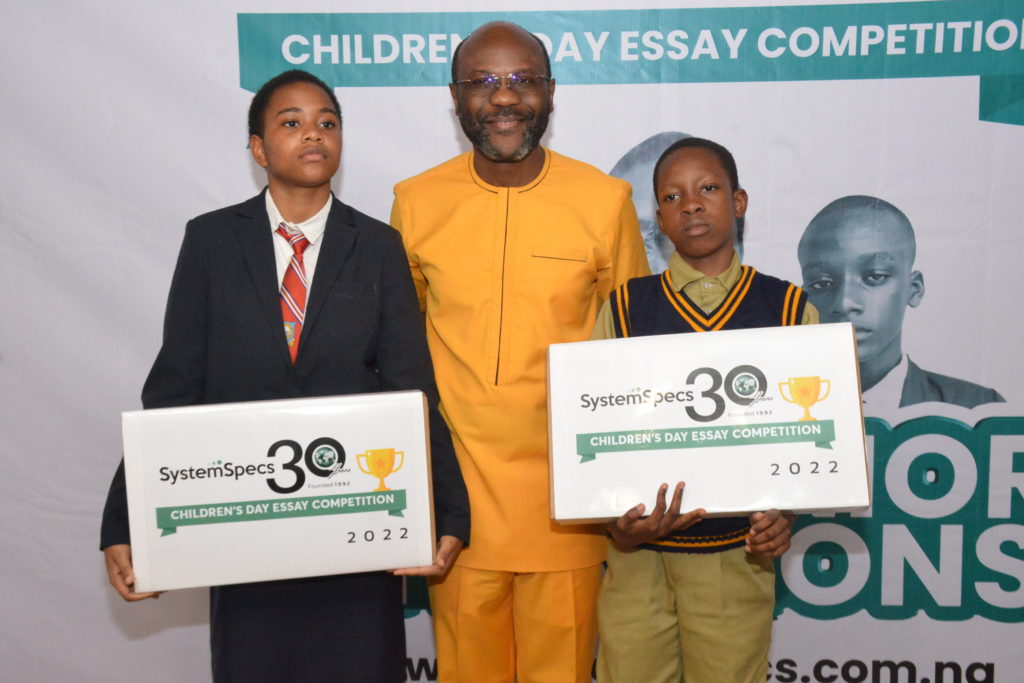
Top winners, all of whom were present or represented at the venue of the event in Lagos, were presented with gifts that included tens of high-capacity laptops, top-notch headphones, free 3-month uLesson coding courses, 480-gigabyte internet data for one year, branded travel suite cases, unique keepsake hoodies, thermal flasks, school bags, among many others.
Some of the honourees are 11-year-old Oluwaseun Samuel Temitayo-Ojo of Igbobi College, Yaba, Lagos, and 15-year-old Ekemini Keziah Effiong-Robert of The African Church Model College, Agege, Lagos who emerged winners in the junior and senior categories respectively. Both emerged ahead of about 2,000 entrants from both private and public primary and secondary schools across the country.
Also among the top 3 in each category are 10-year-old Somadina Edeh of Independence Layout Nursery and Primary School, Enugu State and Chetachi Best Mbalu from Lagooz School, Iyana-Ipaja, Lagos State, who emerged first runner-up in the junior and senior categories respectively; and 12-year-old Emmanuel Nkanu Nkanu of St Anne High School, Calabar, Cross River and 13-year-old David Nkereuwem of Holy Mary Comprehensive College, Benin City, Edo state emerged second runners-up in the junior and senior categories respectively.
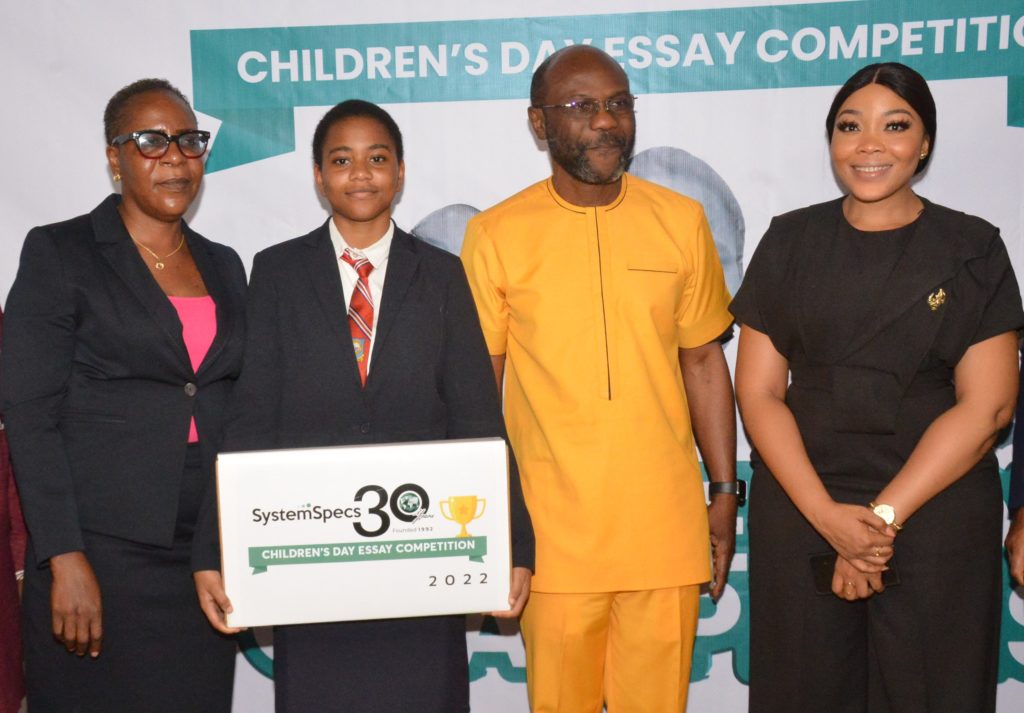
Others who made the top 15 Honour Roll in each category of the competition will also receive consolatory prizes to encourage them to remain innovative.
The African Church Model College, Ifako Agege, Lagos, and Igbobi College, Yaba, Lagos, that produced winning entries in the senior and junior categories, respectively, received 20 and 10 high-capacity laptops per school.
“When they broke the news that I had won the competition to me, I could not contain my excitement. I am delighted that I won and believe it will birth even more significant achievements for me,” said Ekemini Keziah Effiong-Robert, the first-prize winner in the senior category.
For Oluwaseun Samuel Temitayo-Ojo who was the champion in the junior category, it was a dream come true. “I am happy I won. I have always looked forward to such a glorious time as this. I want to thank my teachers and my parents for their support,” he said.
Speaking on the feat of the champion from her school, Shade Oluyinka Erinle, principal of The African Church Model College, Ifako Agege, Lagos, expressed her excitement. “She has made us all proud,” she said, adding that the computers her school won would indeed add immense value to the school’s brand promise of delivering qualitative education.
“On this special day, we crowned the champions of this year’s SystemSpecs Children’s Day Essay Competition and the schools that produced them in recognition of the need to emphatically celebrate young talents that emerge from Nigeria who have the potential to transform our world.

“Not only have these young ones proffered solutions to some of Nigeria’s nagging challenges in the educational sector, but they also can champion the vision of a new and truly thriving country we all will be proud of,” said Oluwsegun Adesanya, Group Head, Corporate Services.
“With the ambiance of the occasion and the tangible excitement of the winning participants, other students, teachers, principals, parents, and other well-wishers, we are once again reinvigorated to continue to impart the lives of Nigerians, young and old, irrespective of their location,” he added.
The annual SystemSpecs Children’s Day Essay Competition is part of SystemSpecs’ Corporate Social Responsibility (CSR) commitment toward advancing capacity development in Nigeria, with a specific focus on creating opportunities for young people across Nigeria to share fresh, bright, and original ideas capable of transforming our country for good.
Get the best African tech newsletters in your inbox
More from this author.

Discovering You
University Council Essay Competition
The annual competition is an opportunity for AUBG students to share their thoughts on the state of the world.
University Council Essay Competition 2024
Topic: “Who is Responsible for Curbing Disinformation?” Examine the roles and responsibilities of governments, tech companies, and individuals in tackling disinformation.
Essays on the topic should be 2500-3000 words, double spaced.
Instructions on how to submit your essay through Canvas:
- Navigate to the AUBG academic platform
- Press "Join This Course" button
- The course is available for students by 5:00 pm on April 22nd, 2024.
- In Modules select the link Essay Submission.
- Browse to select the file with your essay and upload it.
- Click Submit
Deadline for submission is Monday, April 22nd, 2024 by 5:00 pm.
Essays will be judged by a panel of faculty and members of the administration.
Winners and Prizes
Awards will be announced at the Twenty-eighth Annual Honors Convocation on April 27th, 2024. The top three essays will be featured on the AUBG website, with cash prizes awarded to the first, second, and third place winners.
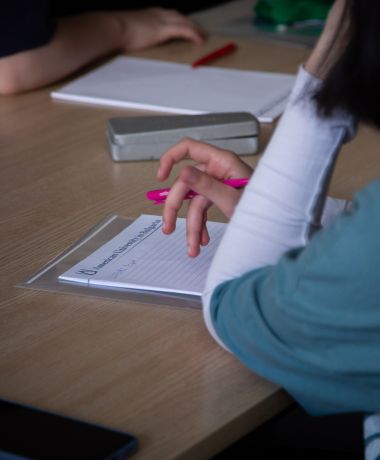
Student work
We are publishing the works of University Council Essay Competition
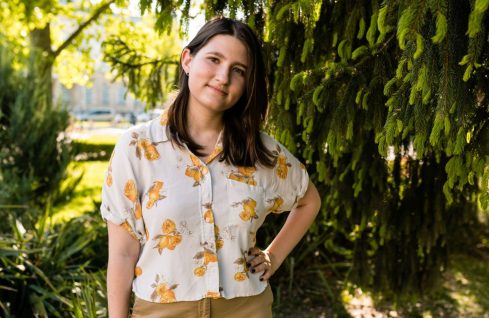
Aleksandrina Hadzhigeorgieva: UC Essay Competition winner 2023
Read the essay of AUBG student Aleksandrina Hadzhigeorgieva who won first prize in this year's University Council Competition. The topic for 2023 was "Is there
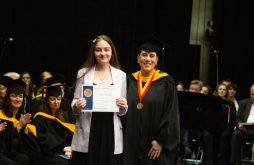
Elizabet Ivanova: UC Essay Competition winner 2023

Kameliya Nikolova (’23): UC Essay Competition Winner 2023

- Privacy Overview
- Strictly Necessary Cookies
- 3rd Party Cookies
- Cookie Policy
This website uses cookies so that we can provide you with the best user experience possible. Cookie information is stored in your browser and performs functions such as recognising you when you return to our website and helping our team to understand which sections of the website you find most interesting and useful.
Strictly Necessary Cookie should be enabled at all times so that we can save your preferences for cookie settings.
If you disable this cookie, we will not be able to save your preferences. This means that every time you visit this website you will need to enable or disable cookies again.
This website uses Google Analytics to collect anonymous information such as the number of visitors to the site, and the most popular pages.
Keeping this cookie enabled helps us to improve our website.
Please enable Strictly Necessary Cookies first so that we can save your preferences!
More information about our Cookie Policy

IMAGES
COMMENTS
The Competition's theme shall be " Shaping the Future of Southeast Asia's Digital Economy ", which invites entrants to think critically about the future of the digital economy they will shape, especially as digitalisation rapidly transforms Southeast Asia. Entrants may consider the theme through the lens of sustainability, trust, or equity, though this is not a requirement.
Watch the highlights from Tech For Good Essay Competition 2022 Prize Ceremony. Themed "Shaping the Future of Southeast Asia's Digital Economy", the competiti...
Tech for Good Institute, a think tank set up by superapp Grab, is now accepting applications to an essay-writing contest open to university students aged 18-35 year old across Southeast Asia. Themed, "Shaping the Future of Southeast Asia's Digital Economy," the contest is open for entries until 31 October 2022.
Tech for Good Essay Competition 2022. The Tech for Good Institute, based in Singapore, is holding a regional essay writing competition on the theme "Shaping the Future of Southeast Asia's Digital Economy". The competition is open to Southeast Asian youth aged 18-35. The essay of no more than 1,500 words should be about the current state ...
Tech For Good Essay Competition. The Tech For Good Institute invites you to participate in this year's Tech For Good Essay Competition, themed "Shaping the Future of Southeast Asia's Digital Economy". Tech for Good Institute, a think tank set up by superapp Grab, is now accepting applications to an essay-writing contest open to university students aged 18-35 year old across Southeast ...
February 1, 2022. (Stage Two) Essay Semifinalists' 2,500-word essays due. February 8, 2022. Launch of Community Service Fellowship Competition for Essay Semifinalists. Early-March, 2022. Essay Finalists announced. March 12, 2022. Community Service Fellowship proposals due. Mid-April, 2022.
🚨 EXTENDED DEADLINE: The Tech For Good Essay Competition is open for submissions for an extra week until 31 October, 2359 GMT+8! If you have been…
TECH FOR a GOOD INSTITUTE 111))))) Tech for Good Essay Competition 2022 About the Competition Together with partners, the Tech For Good Institute invites you to participate in this year's Tech For Good Essay Competition, themed "Shaping the Future of Southeast Asia's Digital Economy". The theme is designed to have our next
The Tech for Good Institute in Singapore invites UP students to join the Tech for Good Essay Competition, with the theme "Shaping the Future of Southeast Asia's Digital Economy."
The Tech For Good Institute invites you to participate in this year's Tech For Good Essay Competition, themed "Shaping the Future of Southeast Asia's Digital Economy". The theme is designed to make leaders of tomorrow think critically about the future of the digital landscape they will shape, especially as digitalisation rapidly transforms Southeast Asia.
CONGRATULATIONS TO THE HCGEC 2022 GLOBAL WINNERS! Participants chose a prompt from one of two categories: creative or argumentative. In response to their selected prompt, participants submitted a 500-word essay (limit) for the regional qualifying competition. The top five creative and top five argumentative essays from each region were invited ...
The prize for Best Essay in Technology and International Security Policy is a newly established competition starting in AY 2022-2023. The prize is made possible by a generous donor. Awarded up to once annually, this prize offers recognition for the best essay that considers the impact of technology on prospects for peace or war, and/or the ways in which conflict may shape technology.
The Tech For Good Institute is a non-profit, independent think tank founded by Grab, Southeast Asia's leading superapp. ... In this article, Jestoni A. Olivo, Policy Research Officer at the Philippine Competition Commission, delves into the progressive development of tech regulation in the Philippines and shares his insights on fostering a ...
The 2022 Essay Prize Competition. An essay contest in Three stages open to all current full-time registered students in an undergraduate architecture degree program, undergraduates majoring in architecture, or diploma students in accredited schools of architecture worldwide. 25,000 USD Purse.
Academic conference: 20 - 22 September, 2024. Awards dinner: 21 September, 2024. Contact. Any queries regarding the essay competition should be sent to [email protected]. Please be aware that, due to the large volume of correspondence we receive, we cannot guarantee to answer every query.
Huawei' s flagship CSR program, Seeds For The Future, launched the Tech4Good Global Competition in 2021 as part of its talent development program. This program is a part of Huawei' s efforts to cultivate global talent and discover new ways to harness technological innovation to advance sustainability. Check out the Tech4Good 2021 winning teams ...
The goal of this competition is to help students develop policy writing skills, foster inter- and multidisciplinary research conversations on emerging technologies, and facilitate collaborations across fields. Winners will be announced in early September, and the three winning teams will receive a total of $10,000 in cash prizes.
The 2022 China Focus Essay Contest English entries winners are William Yuen Yee, who recently graduated from Columbia University, and Natasha Lock, who is a recent graduate of Yenching Academy. Their essays answered timely questions in China and the United States regarding high-tech regulation and disinformation respectively.
Global Essay Competition Compete in our Global Essay Competition and qualify for participation as a Leader of Tomorrow in the world's premier opportunity forcross-generational debates: The St. Gallen Symposium. Meet 300 of society's brightest young minds. Present and debate your ideas with 600 senior leaders. Be inspired by some of the world'smost impressive speakers. Gain […]
2022 Essay Competition Winner - Anais W. Back. Next. Take a look at one of this year's winning entries to the Immerse Education Essay Competition from the Creative Writing category. Congratulations to all participants and in particular to those who have won 100% scholarships!
From using cutting-edge technology to help Ukrainian refugee children, to protecting biodiversity in the face of mass extinction, combatting wildfires, cleaning up water and fighting waste, a whole host of companies, including Top Innovators from the World Economic Forum's open innovation platform, UpLink, used tech for good in 2022.
SystemSpecs, Africa's leading financial, human capital management, and e-commerce technology giant, the owner of Remita, HumanManager, and Paylink, has presented prizes to winners of the 30th-anniversary edition of its annual Children's Day Essay Competition at a hybrid ceremony held recently. Top winners, all of whom were present or represented at the venue of the event in […]
Examine the roles and responsibilities of governments, tech companies, and individuals in tackling disinformation. This competition is open to all current AUBG students. Read More. Length. Essays on the topic should be 2500-3000 words, double spaced. ... UC Essay Competition winner 2023.